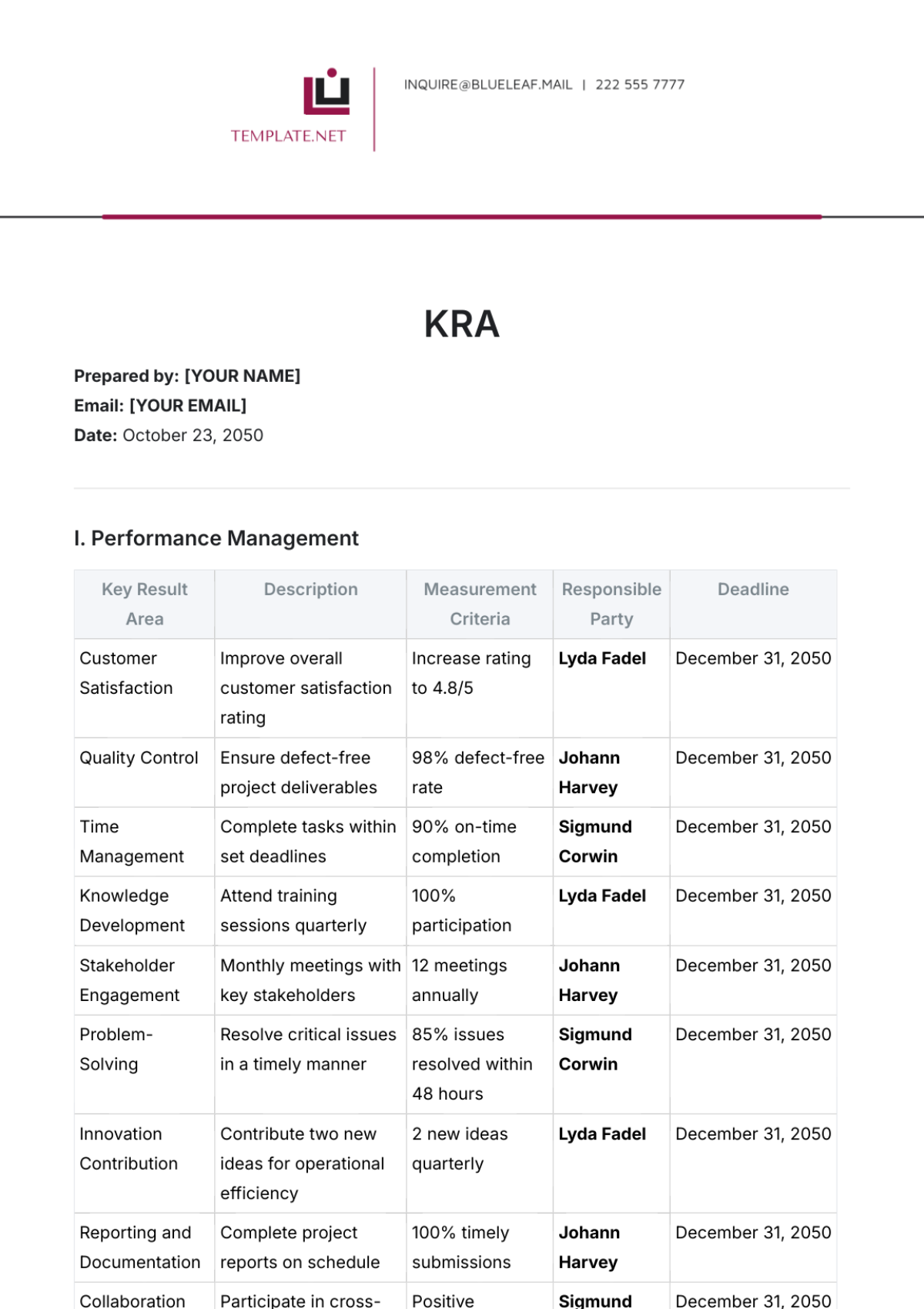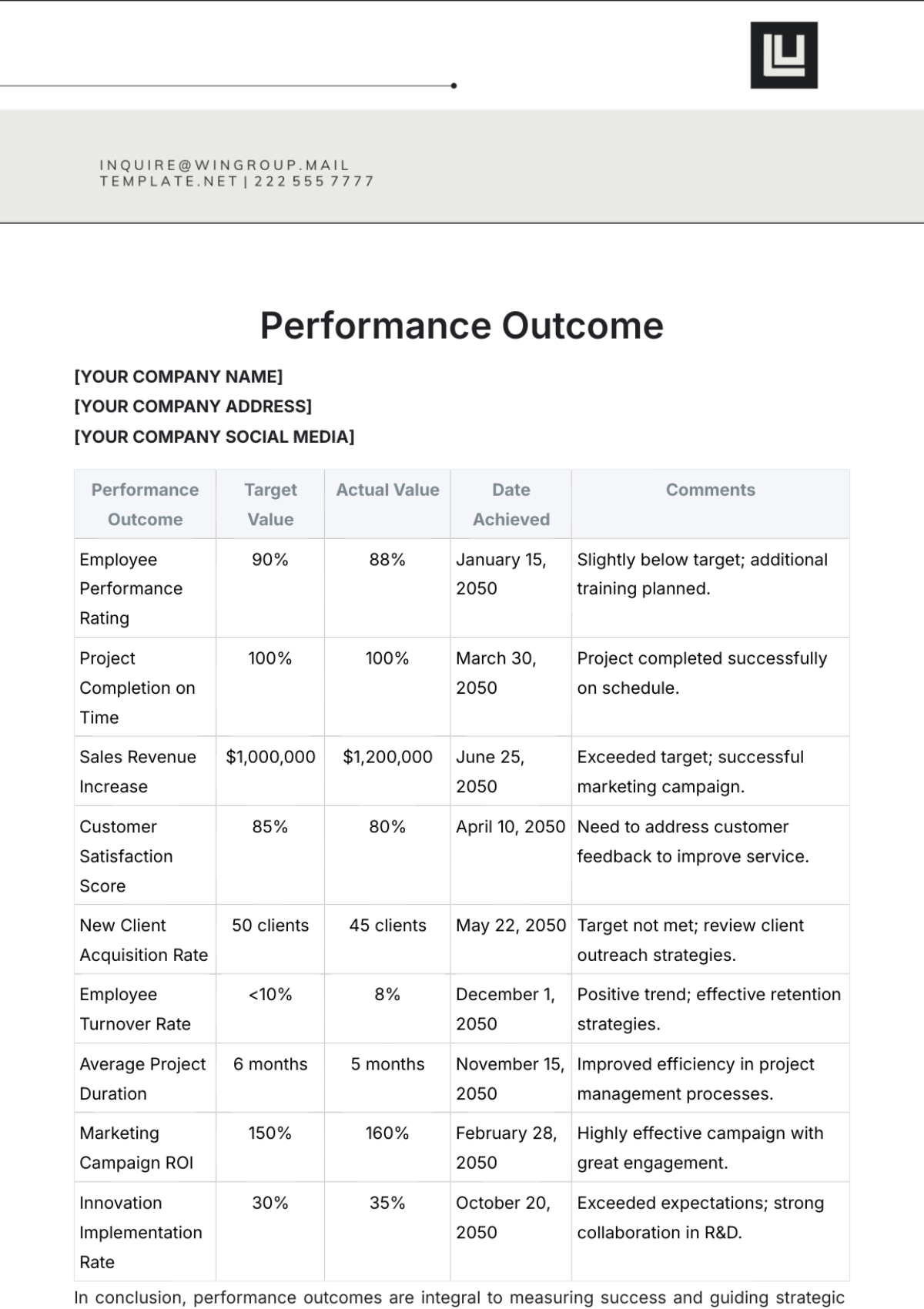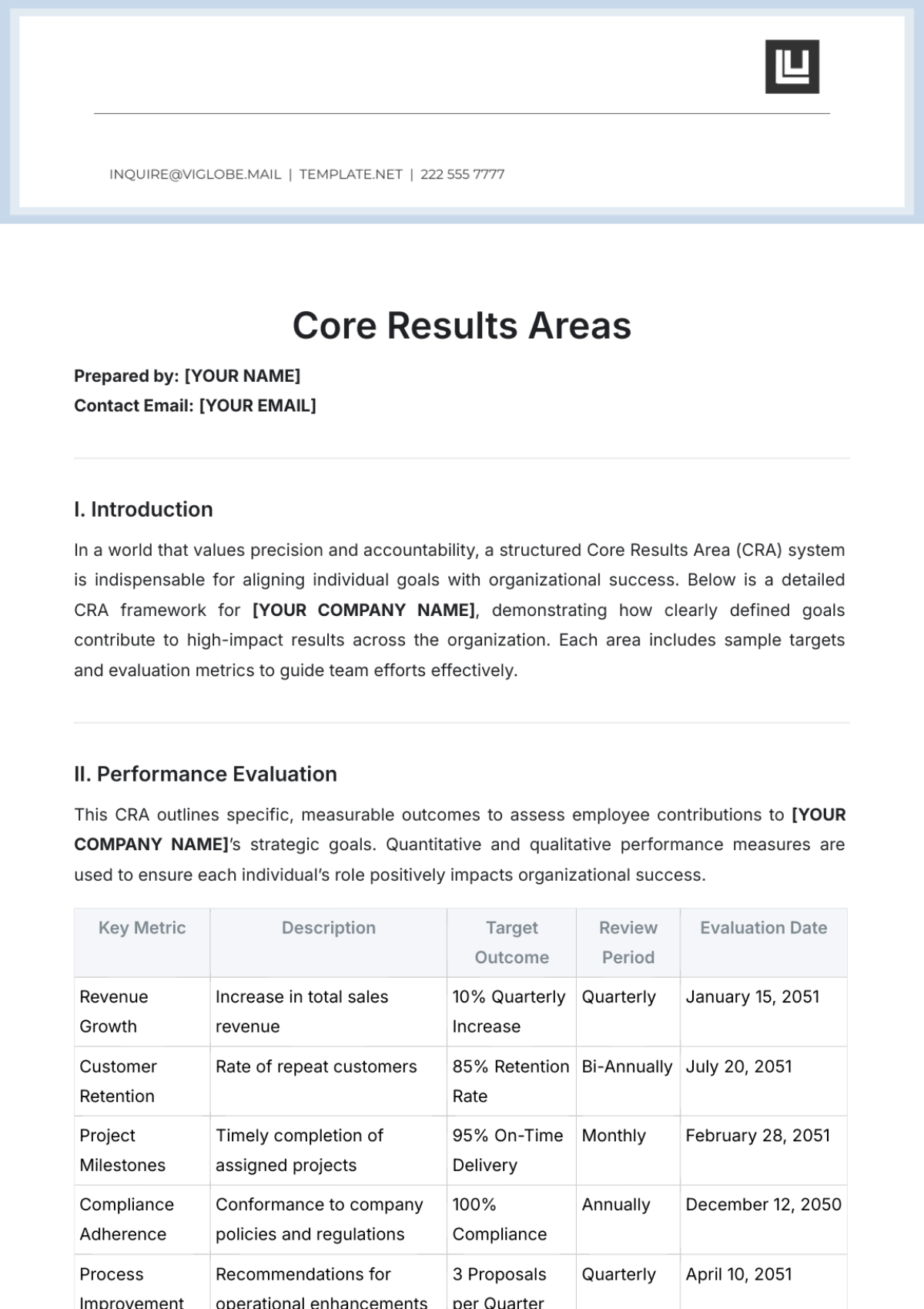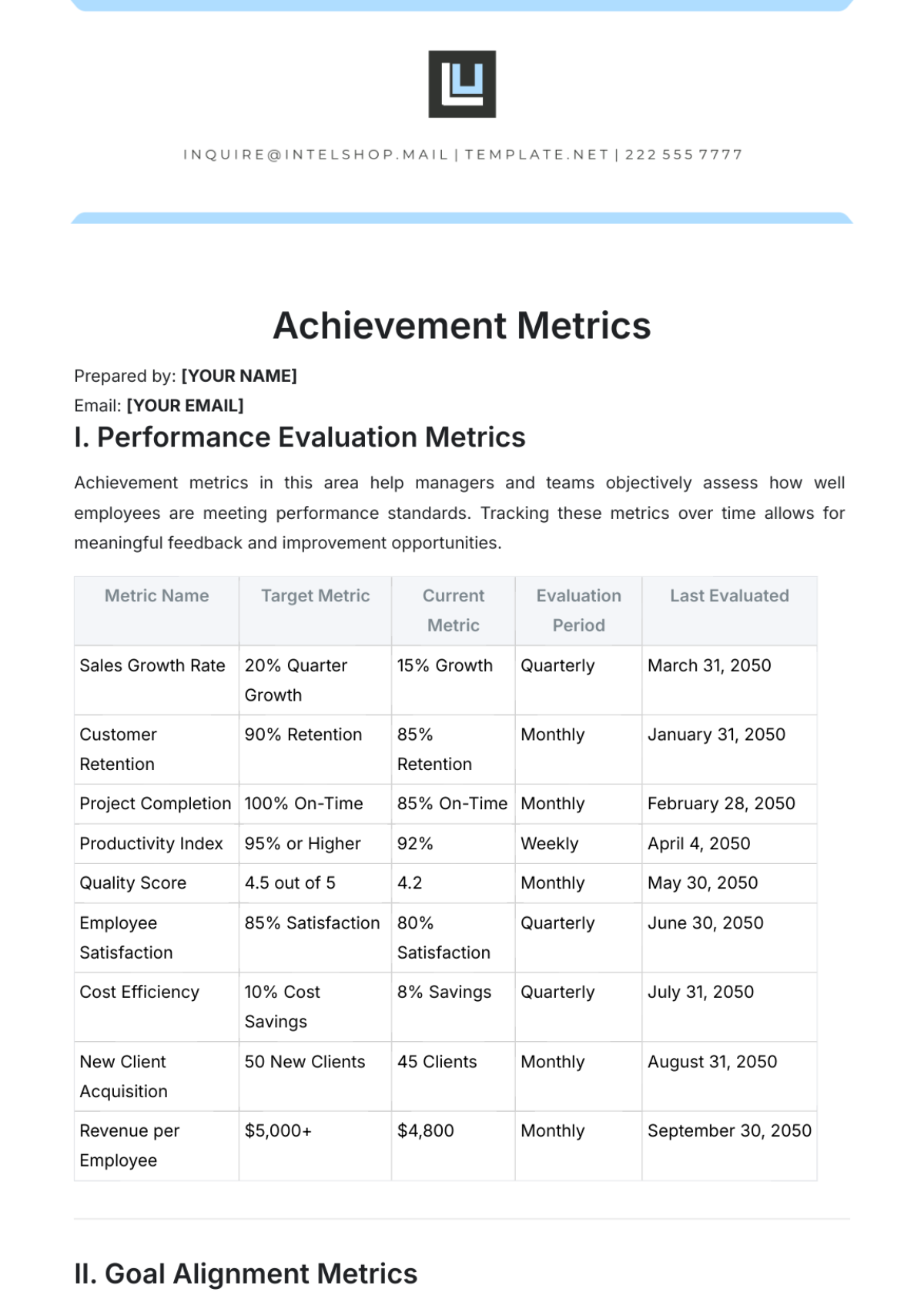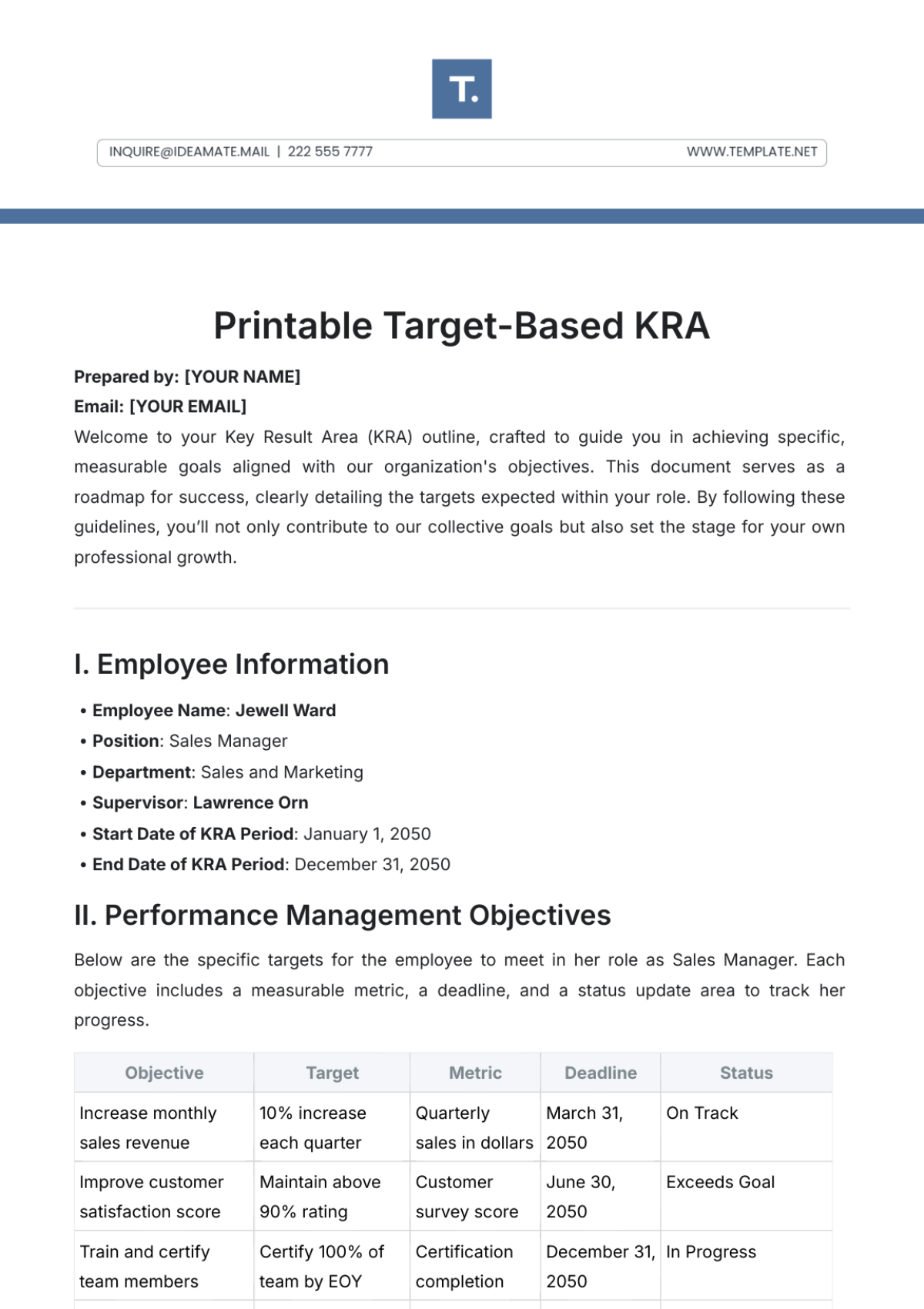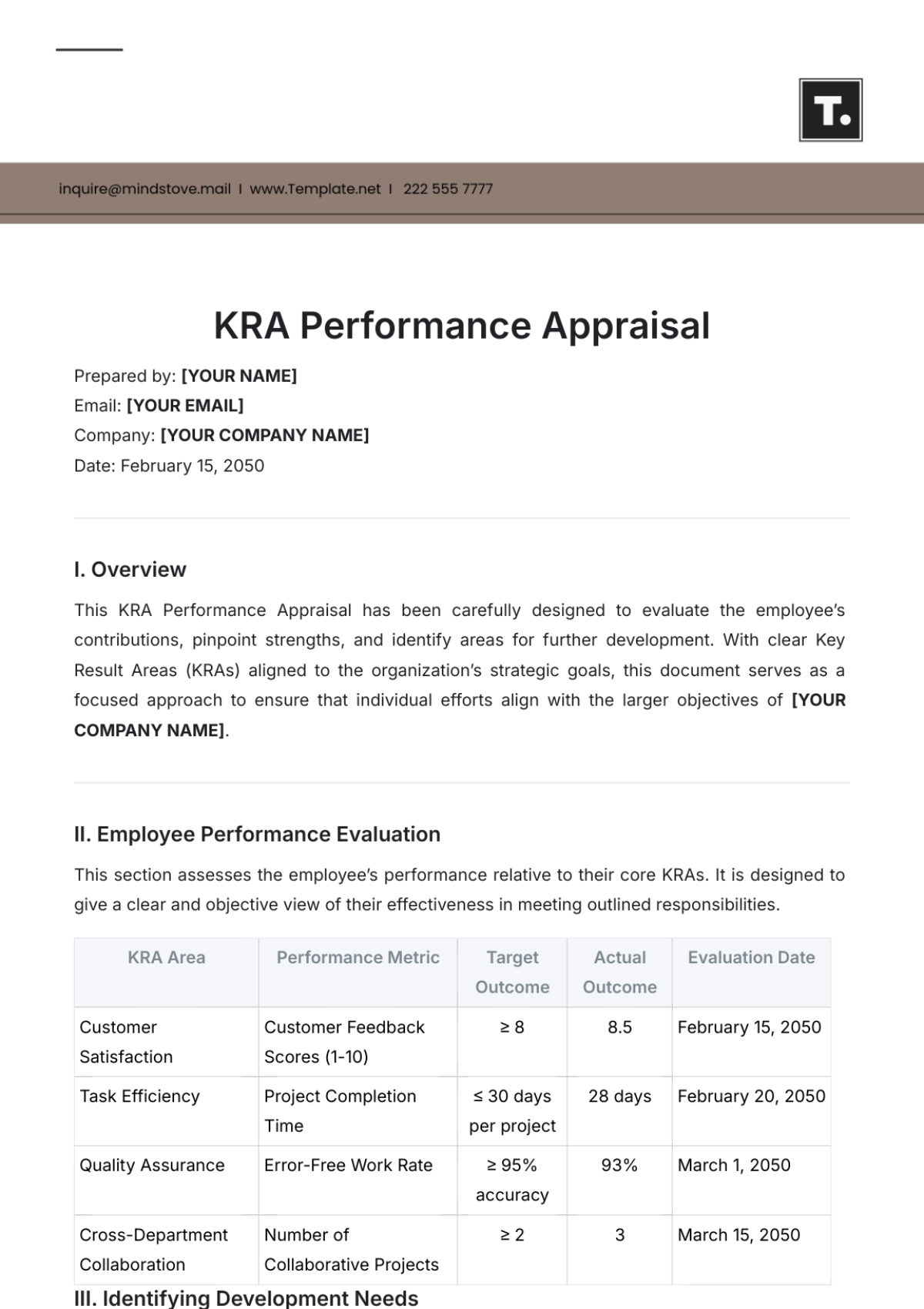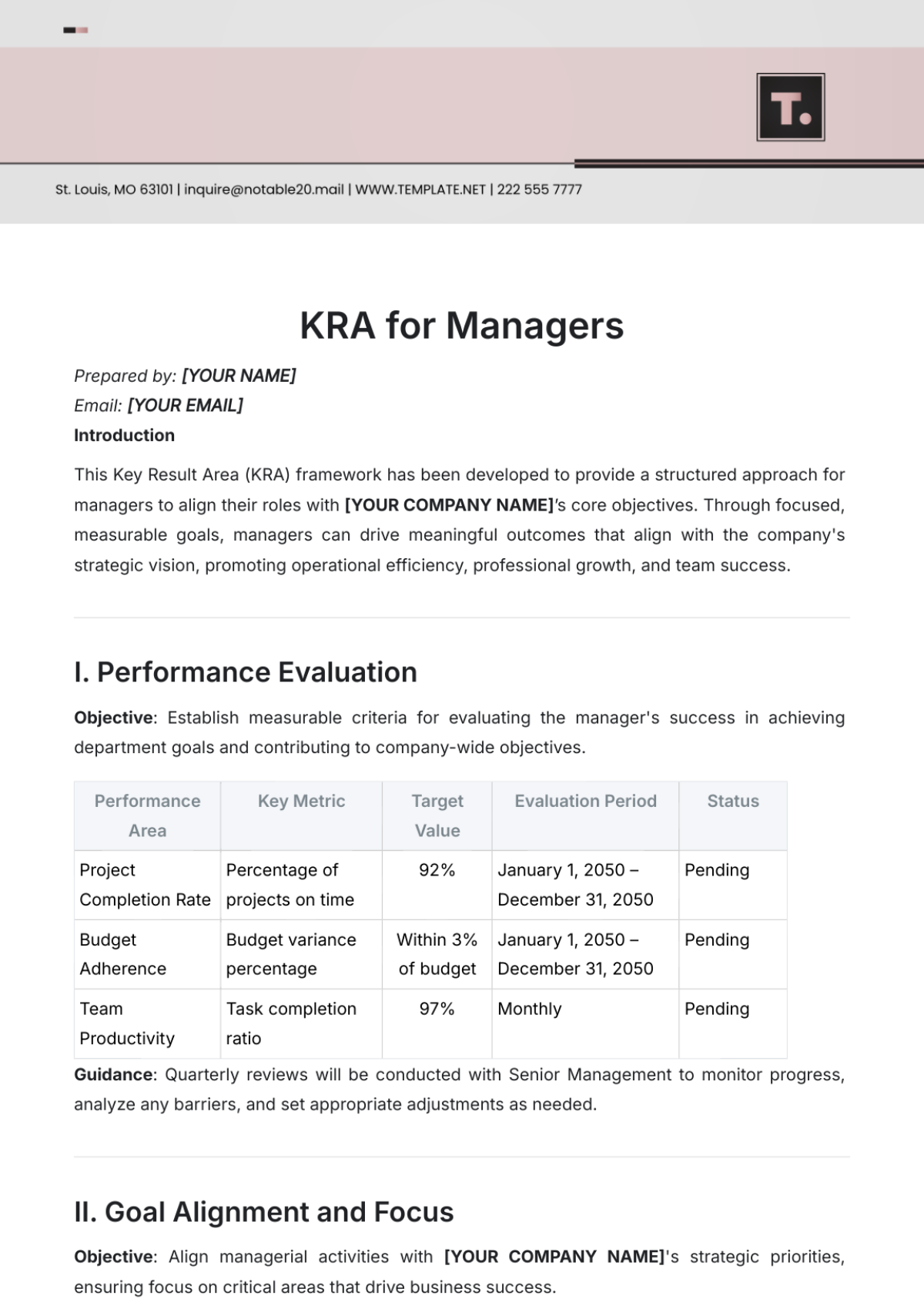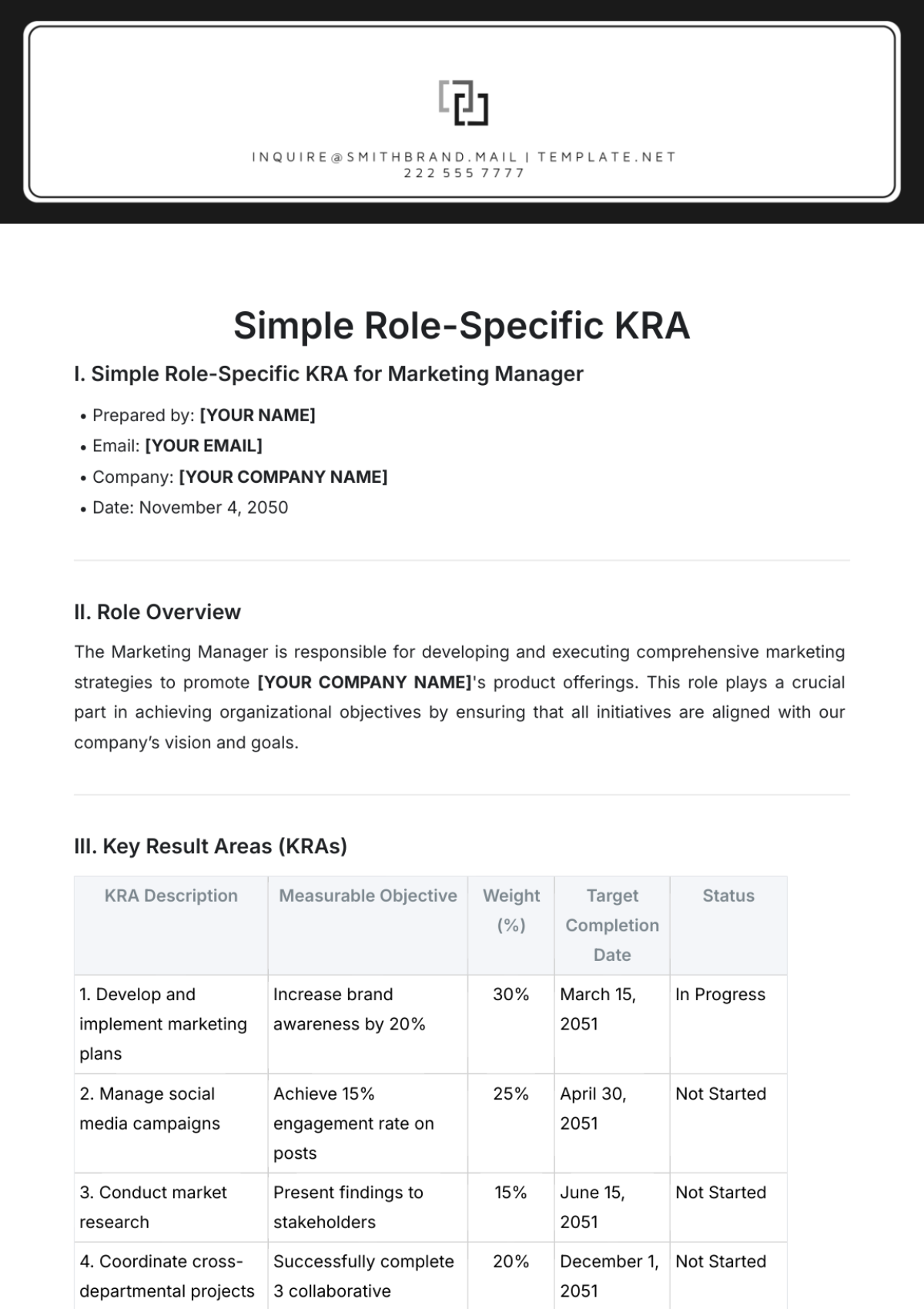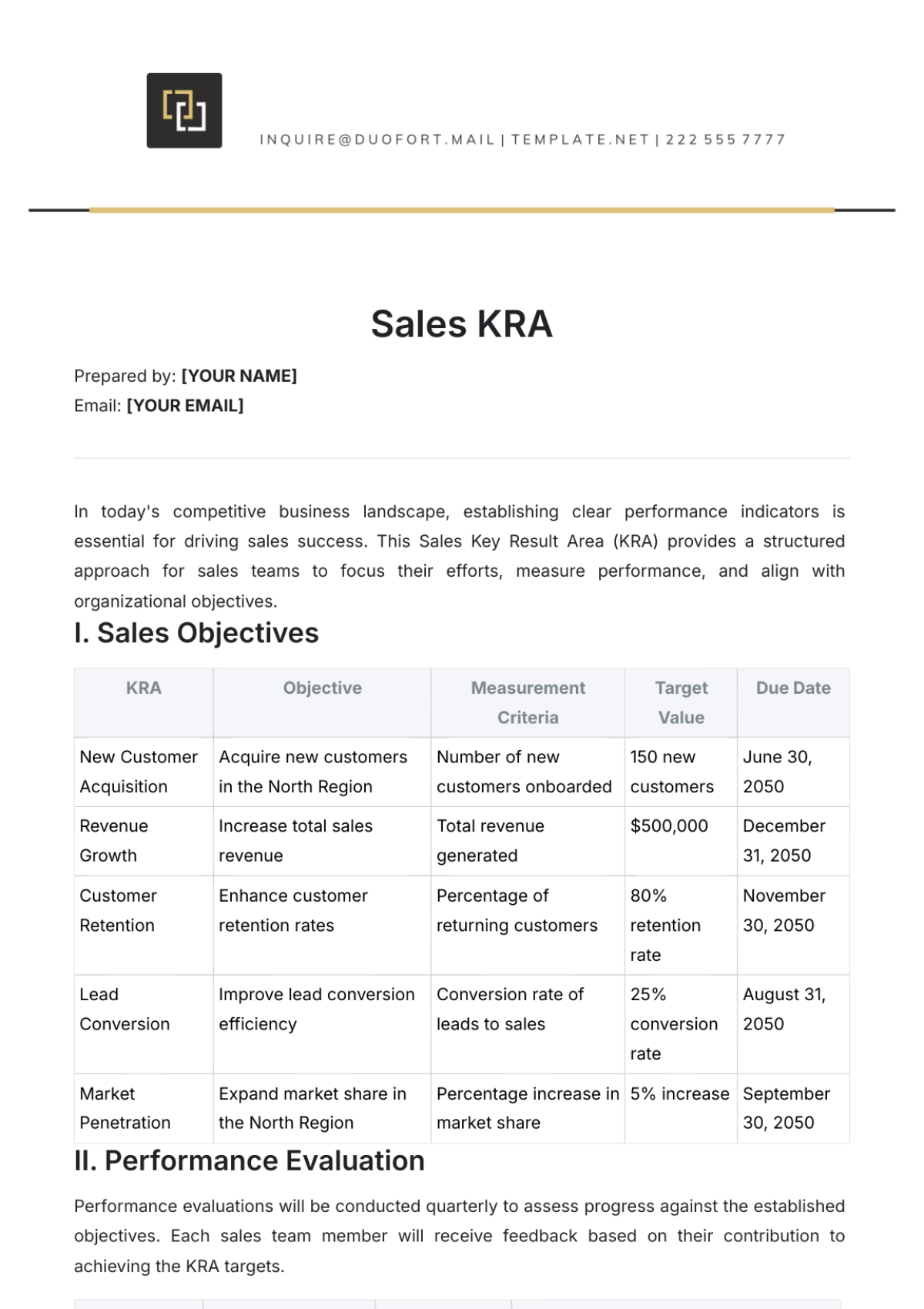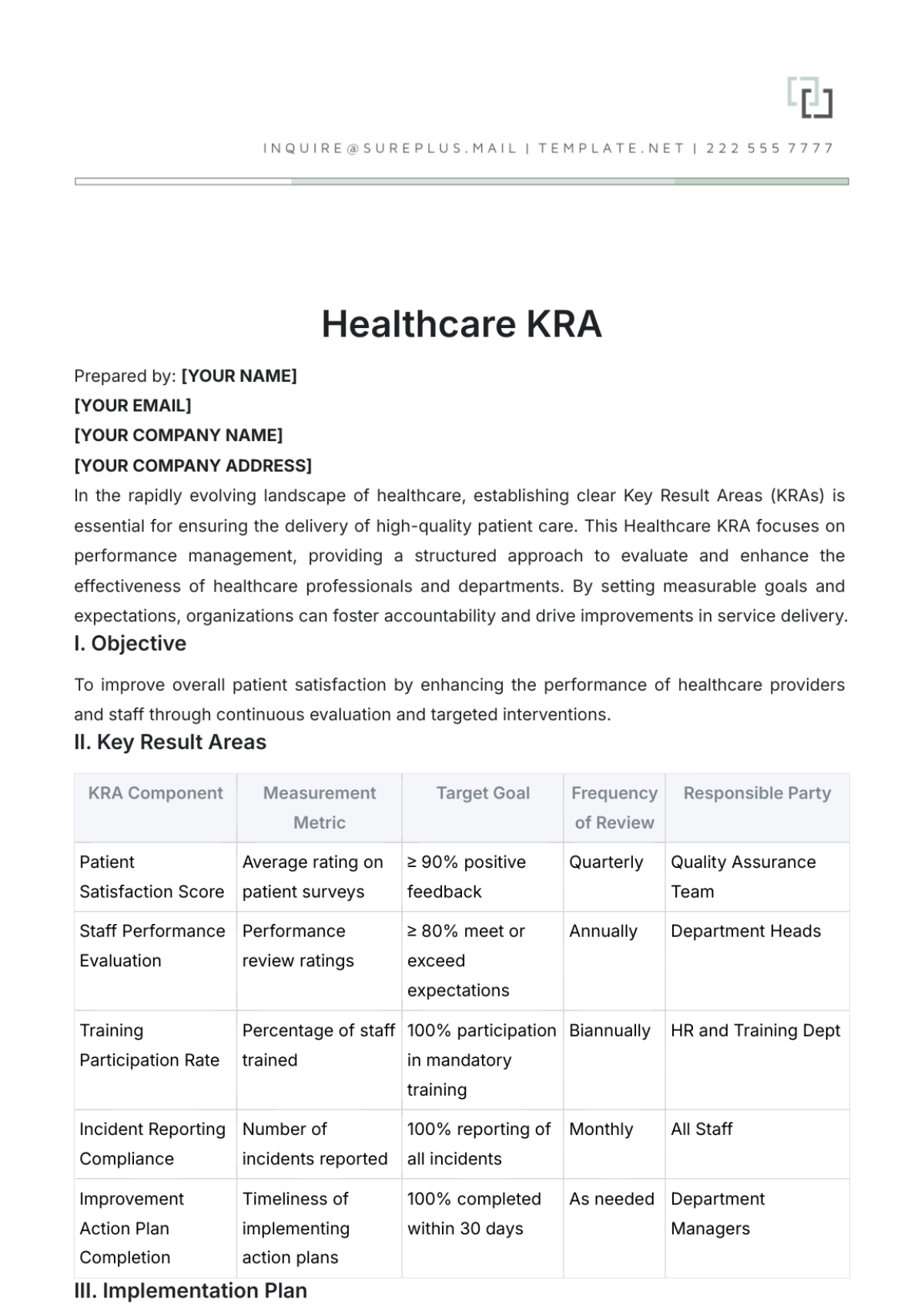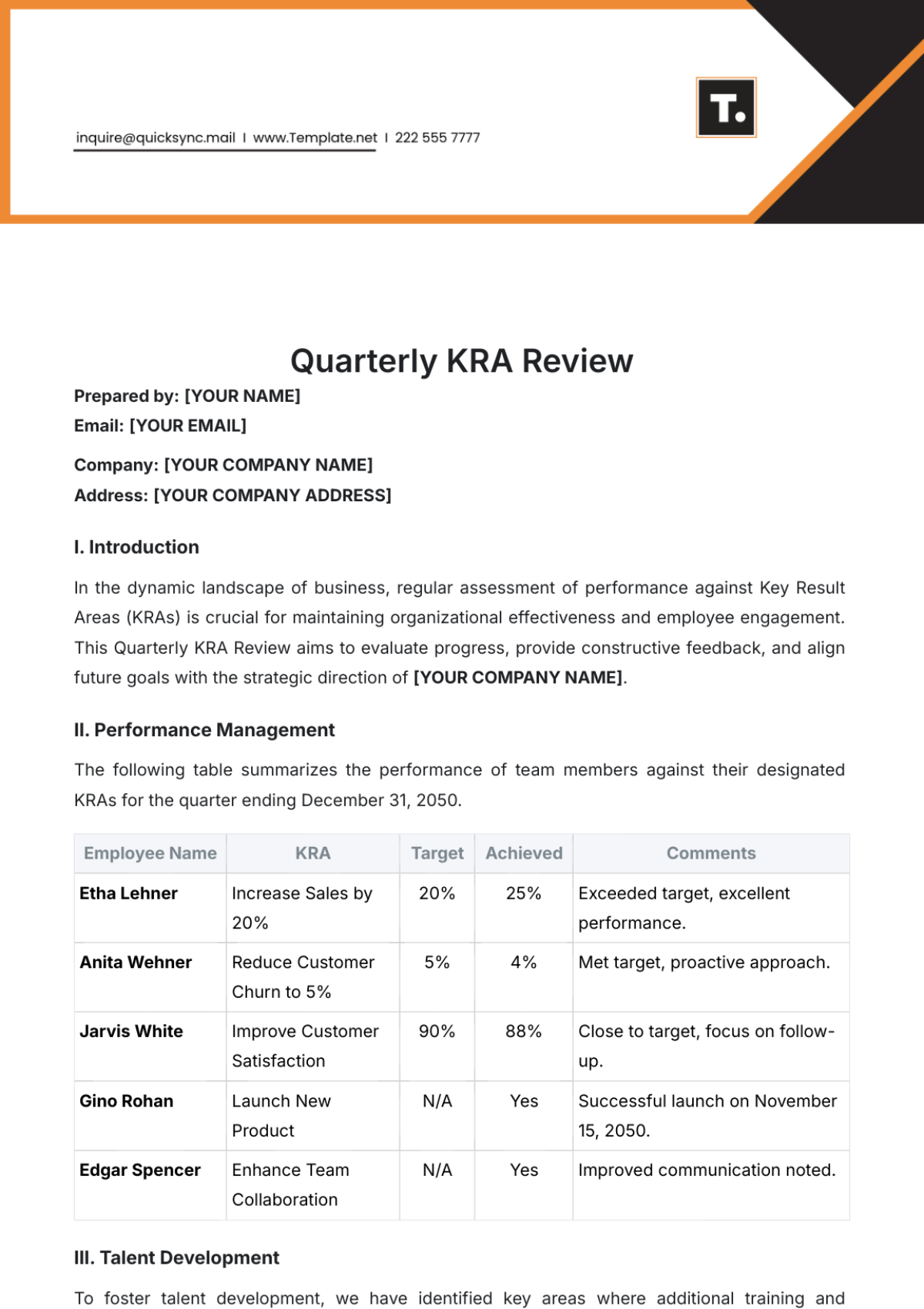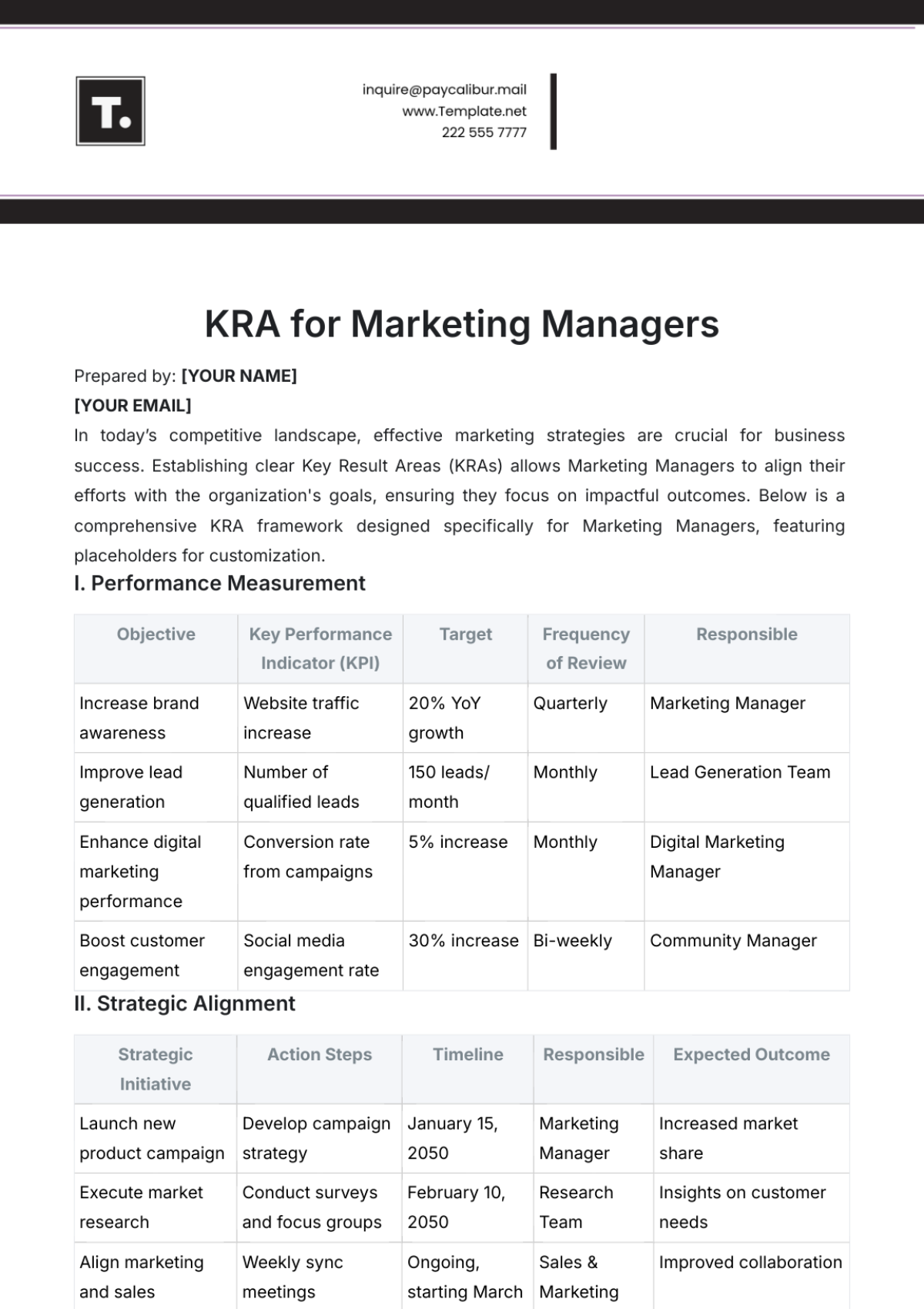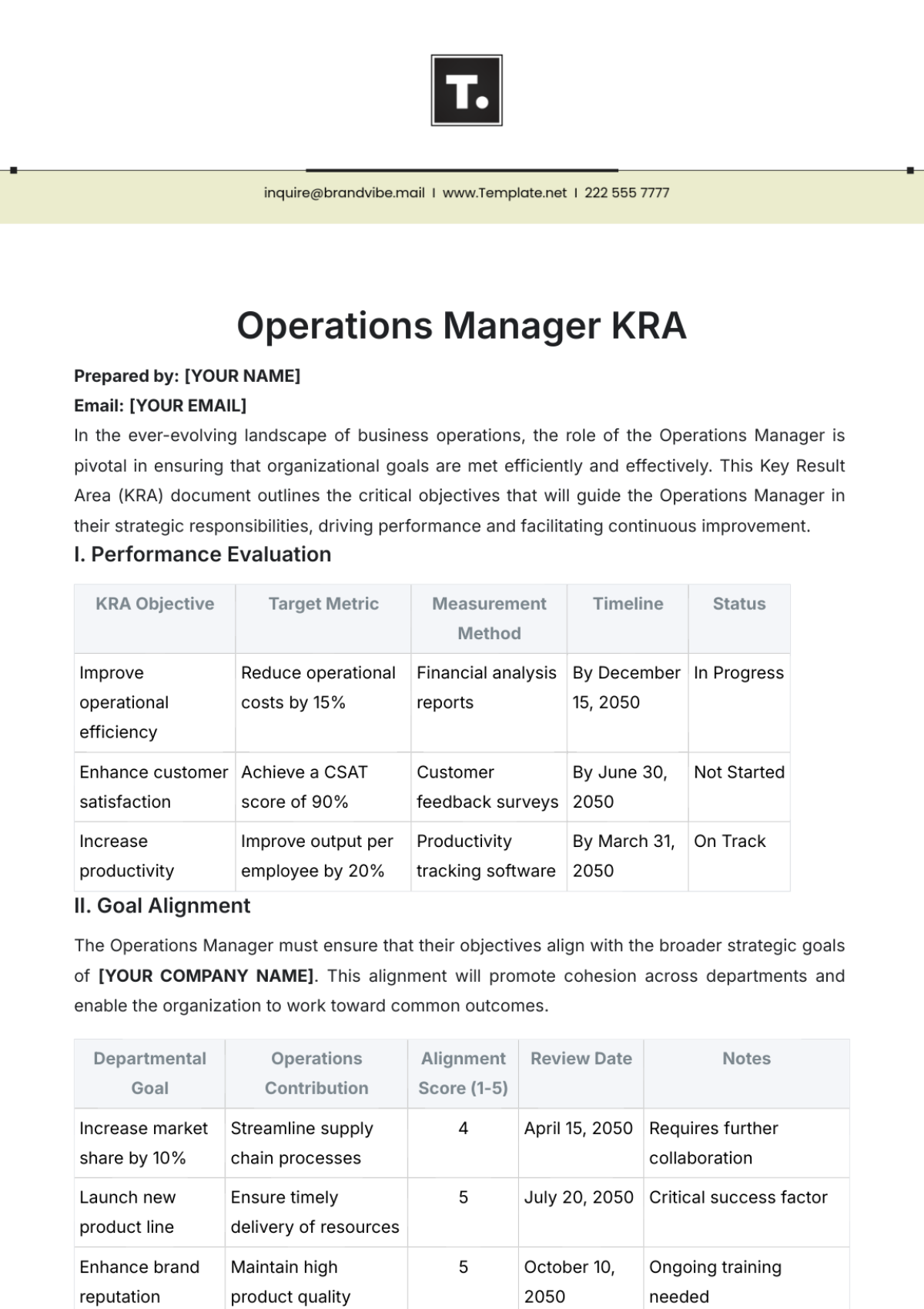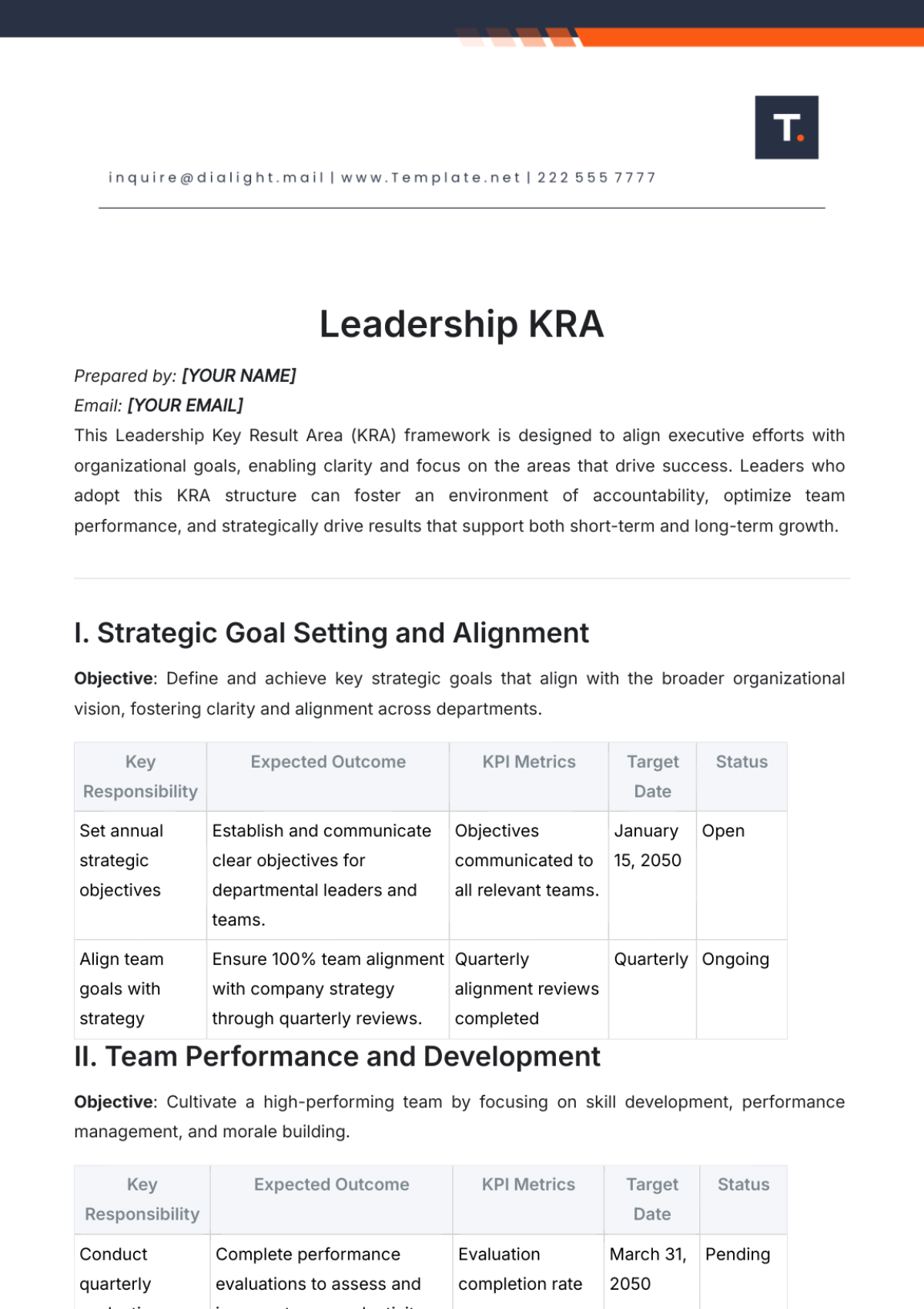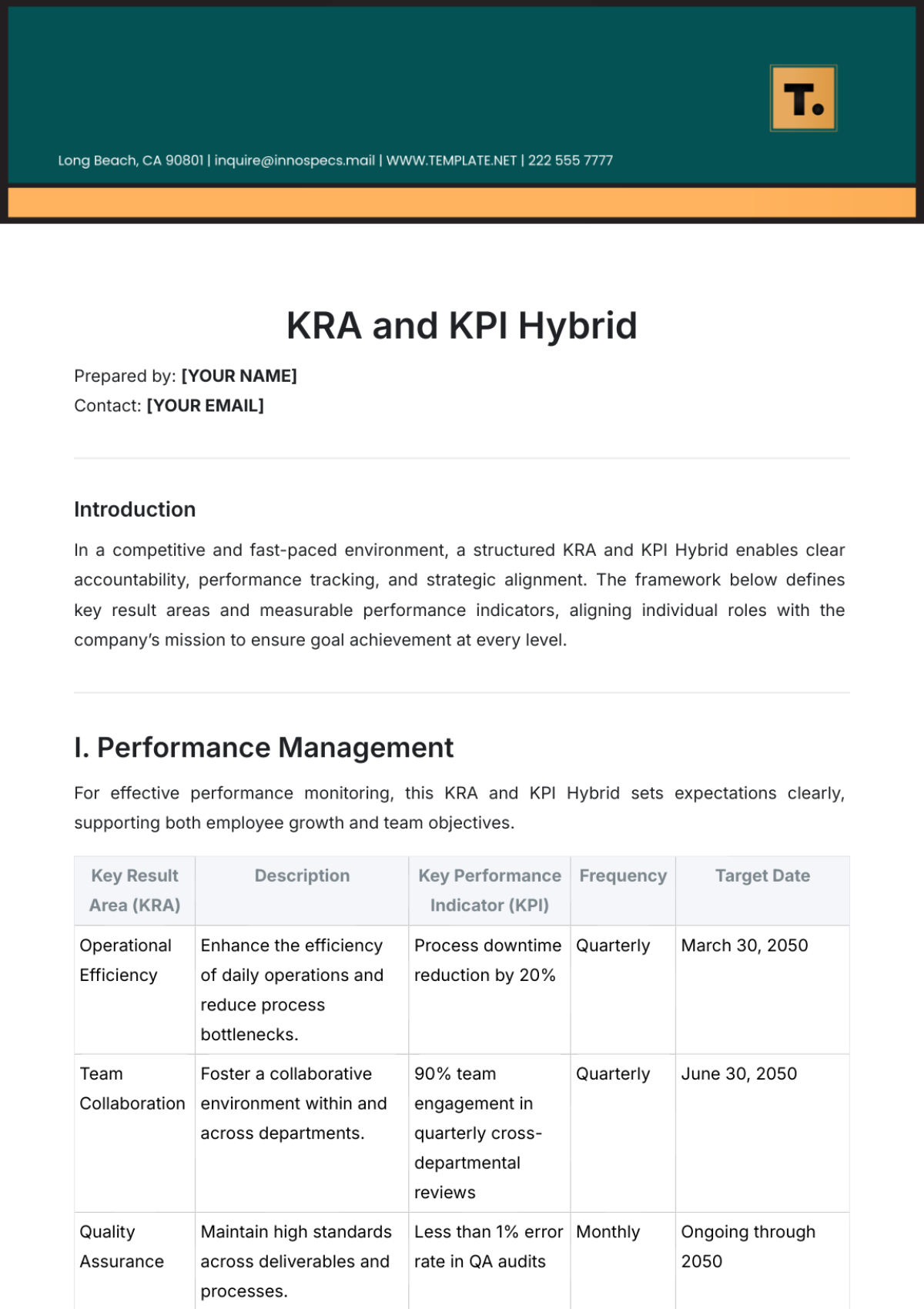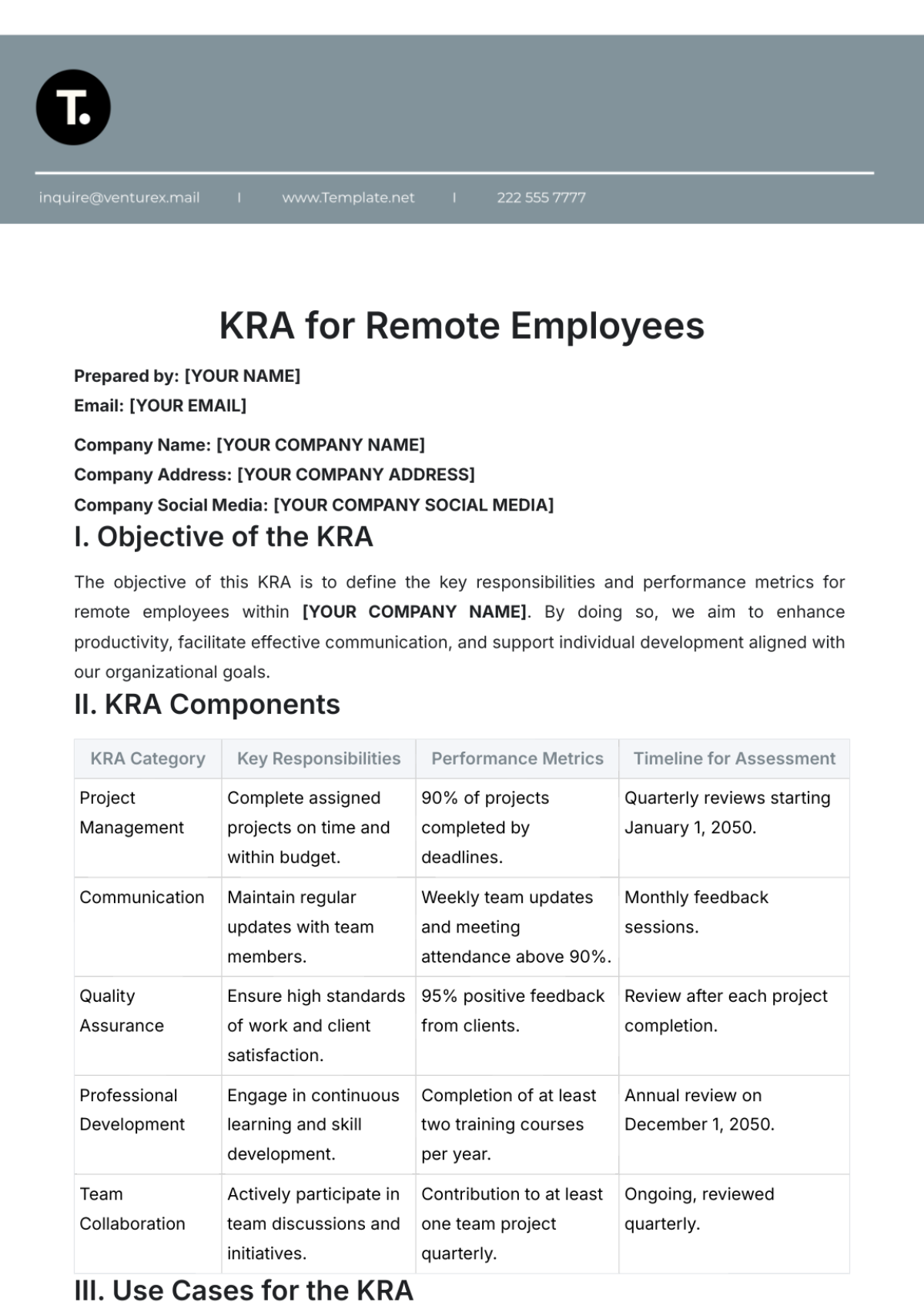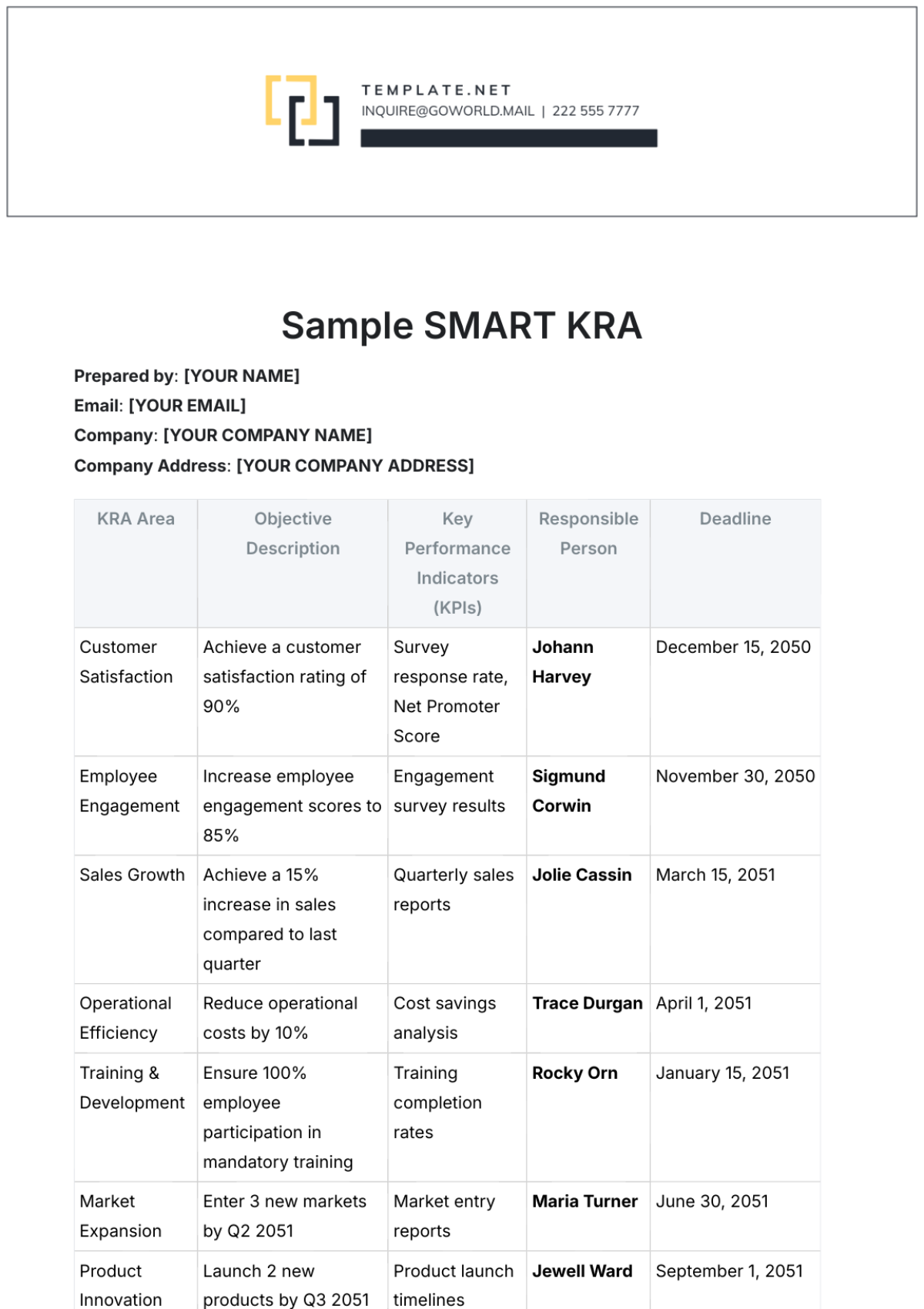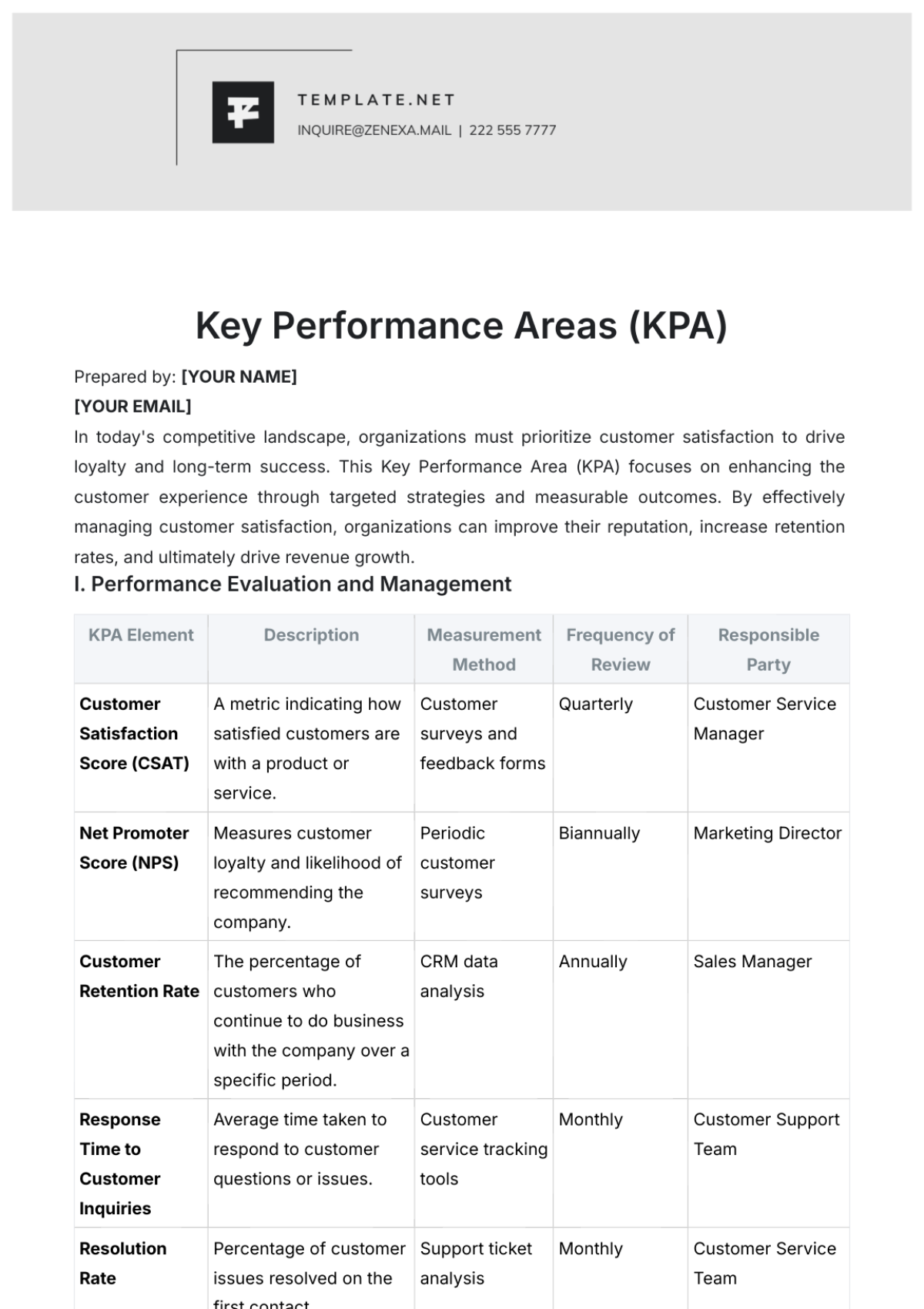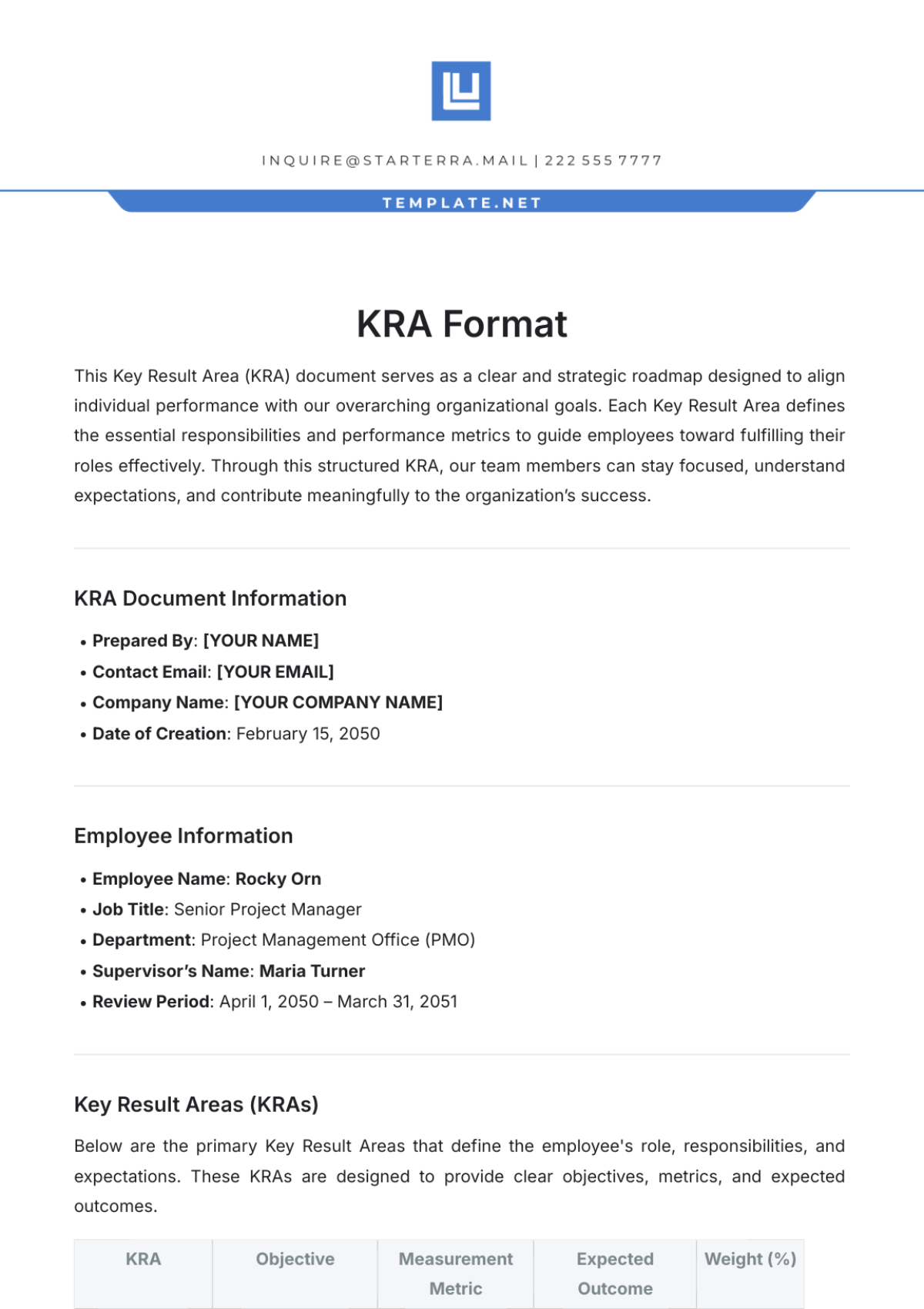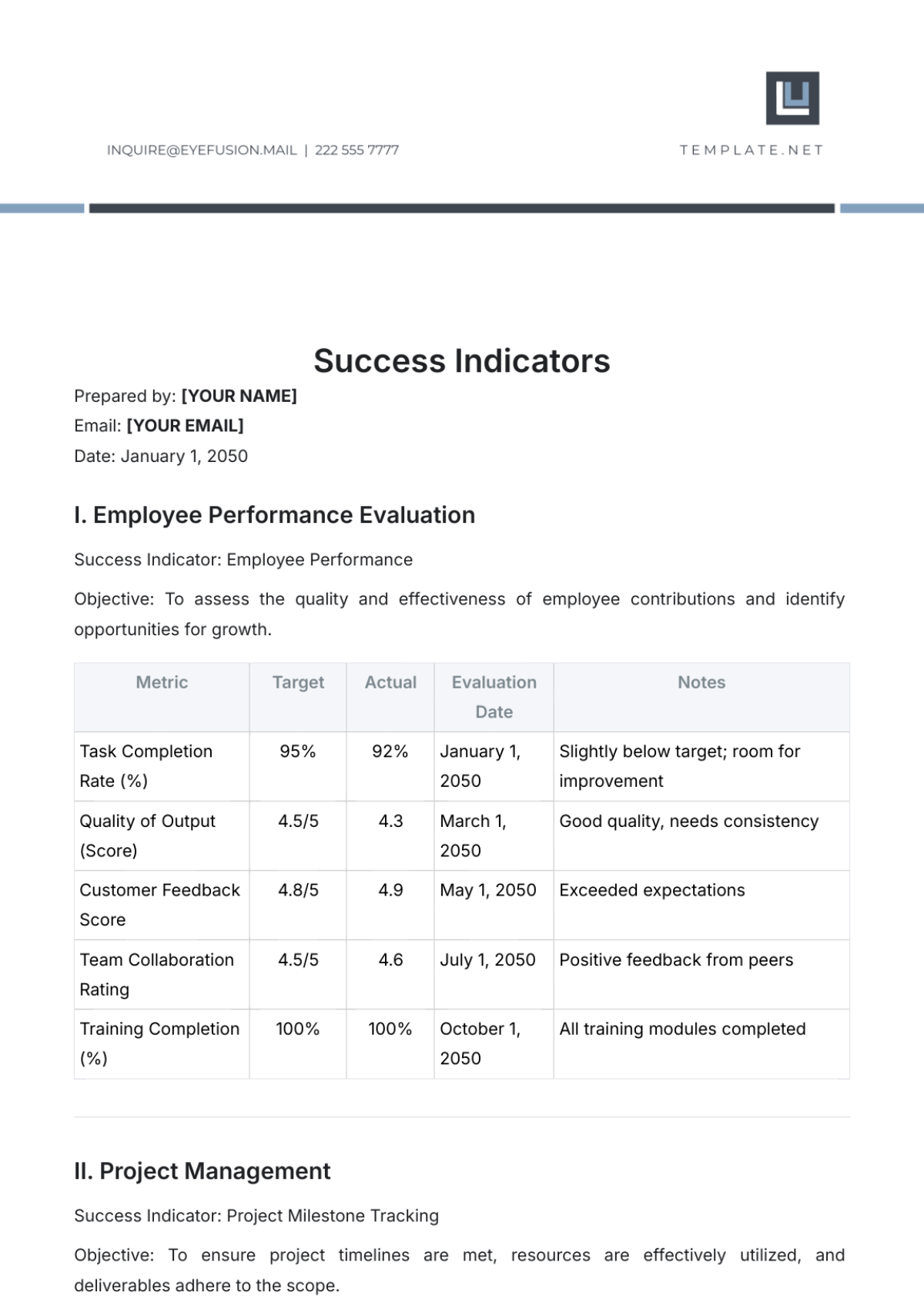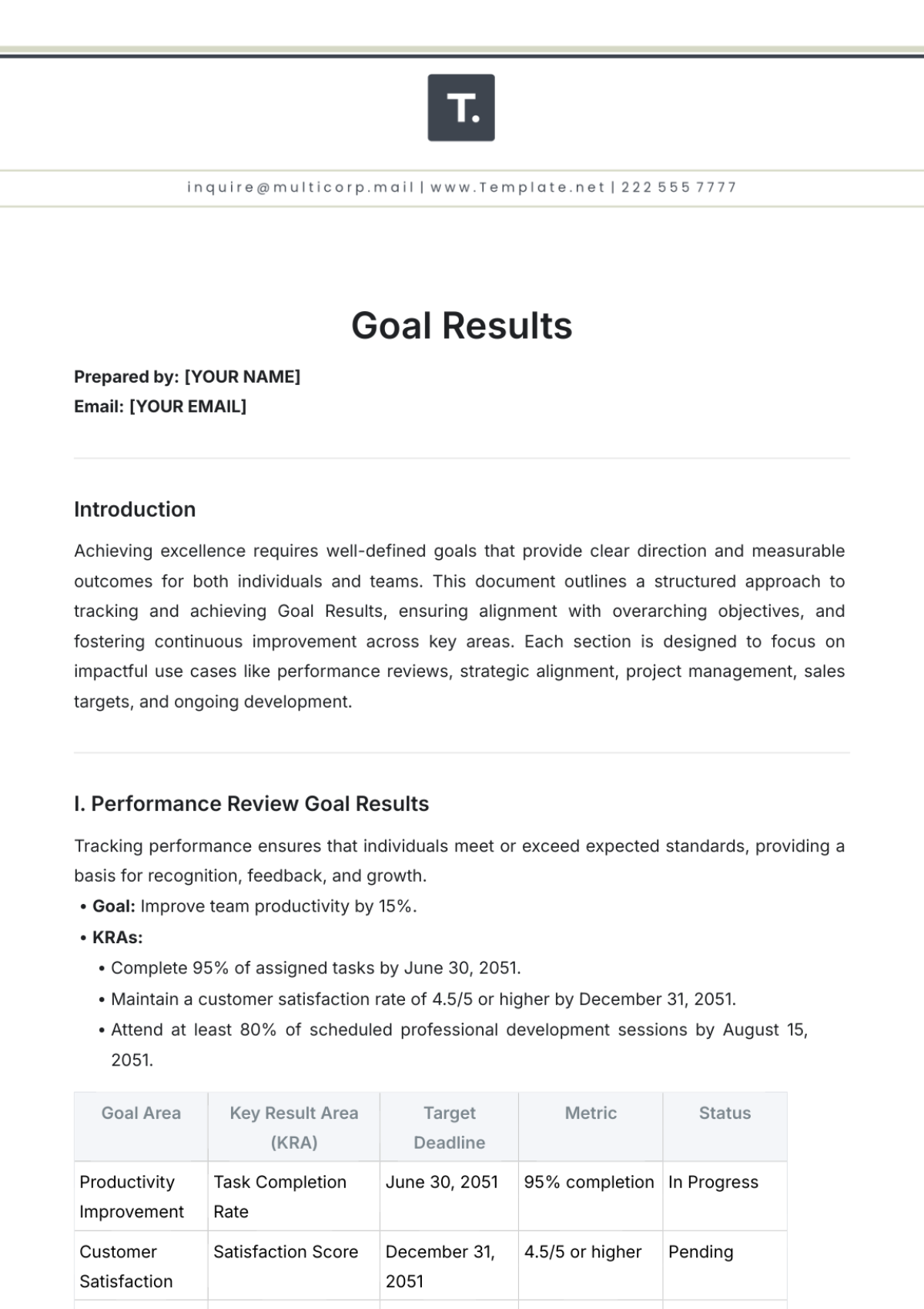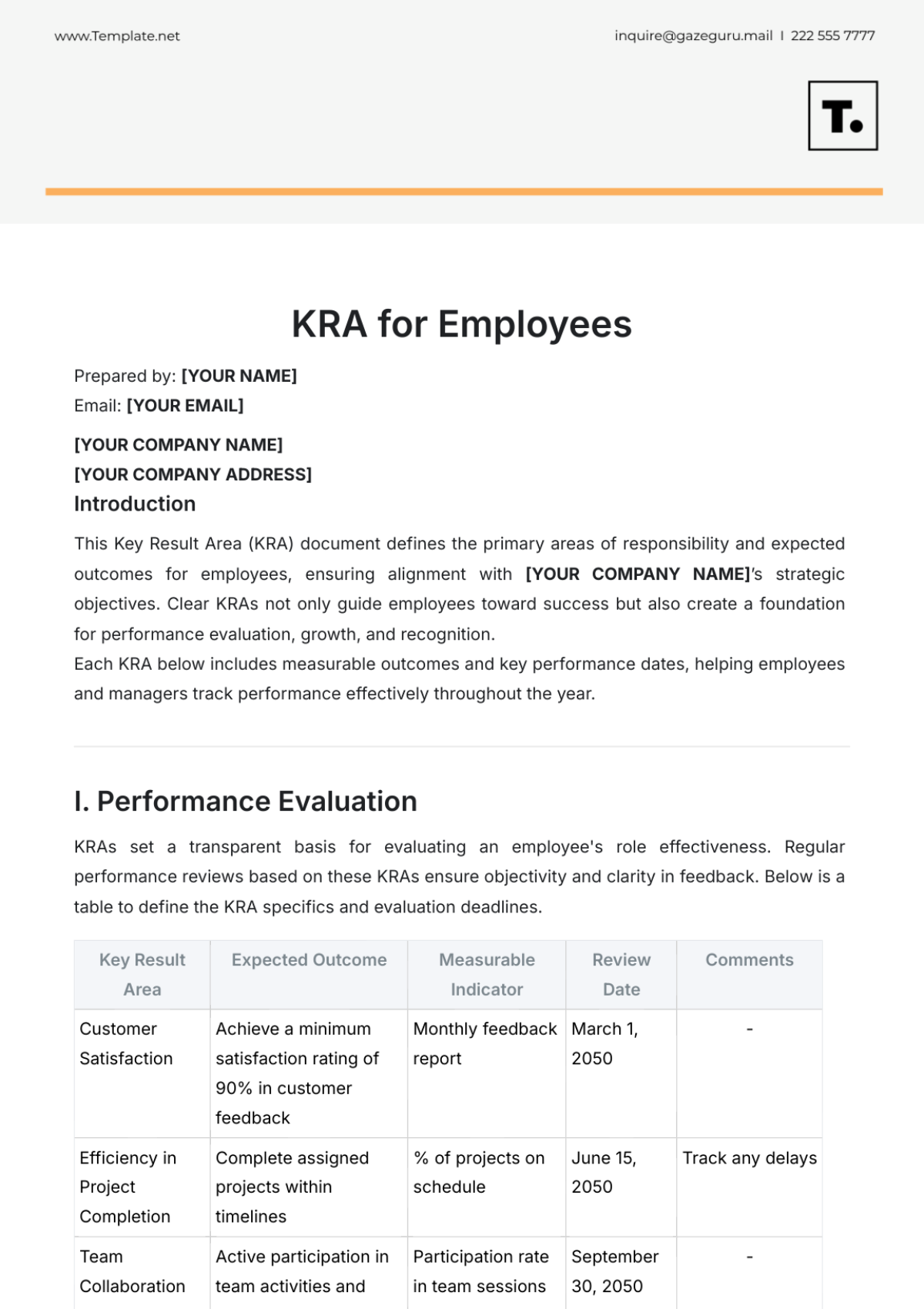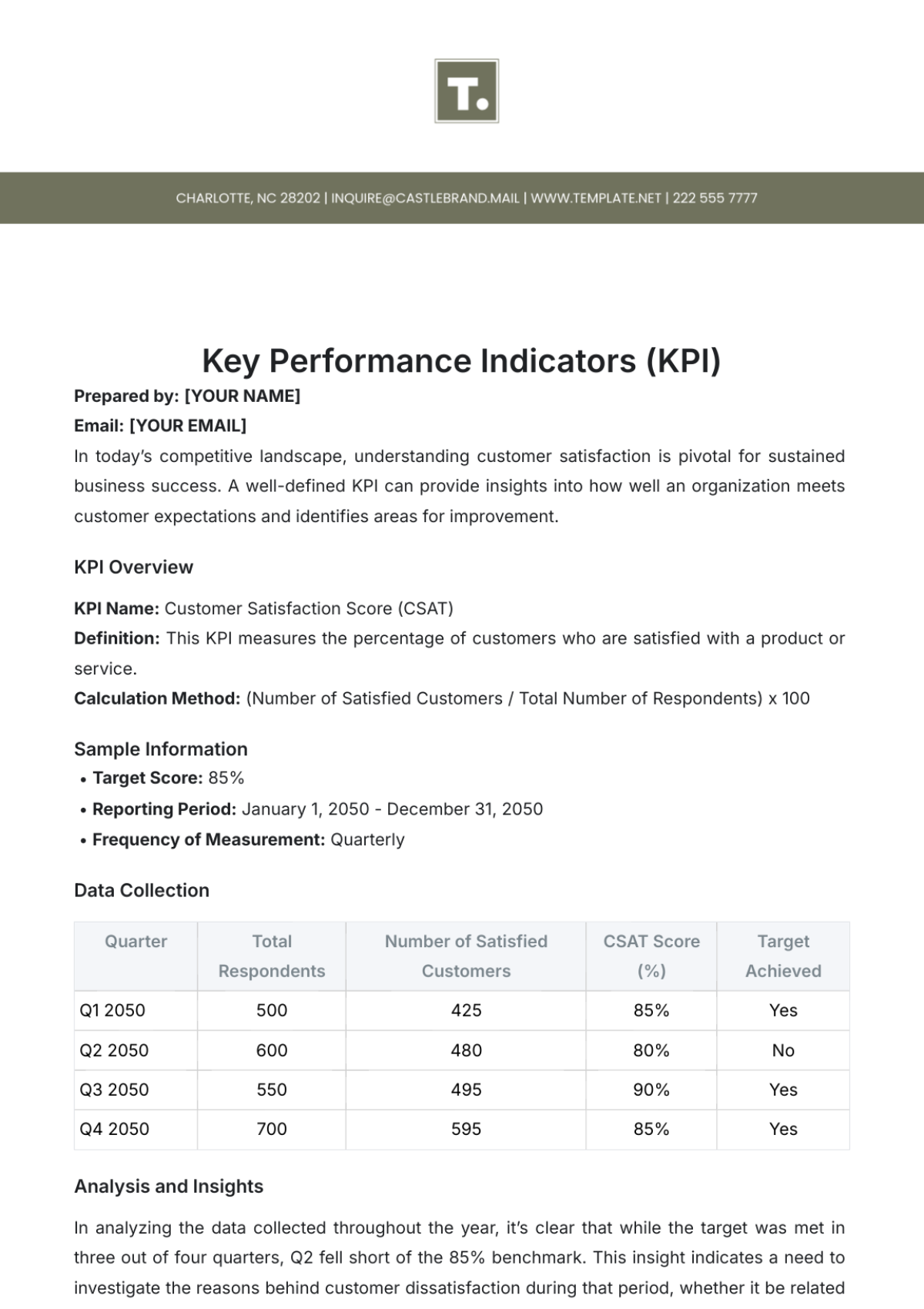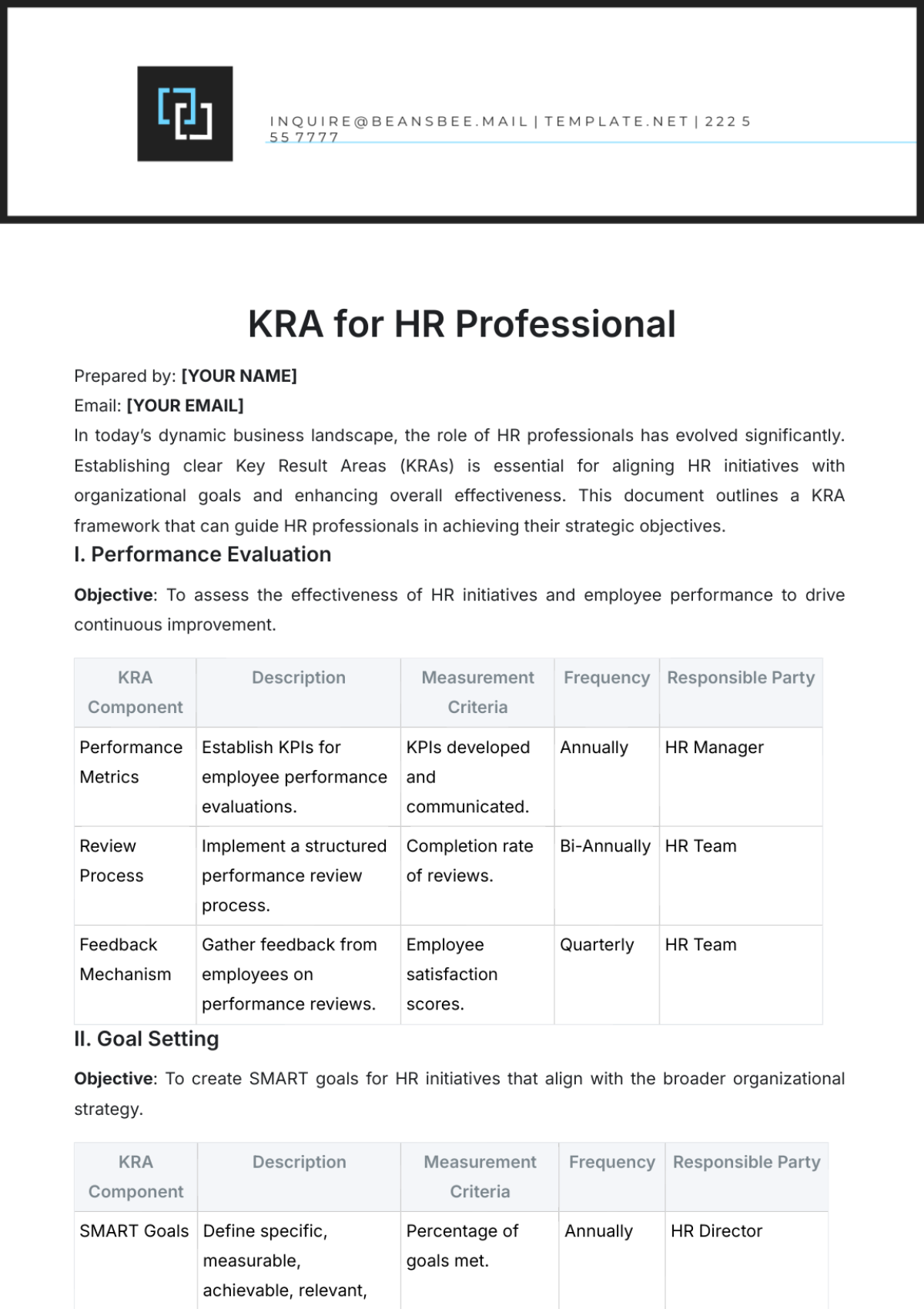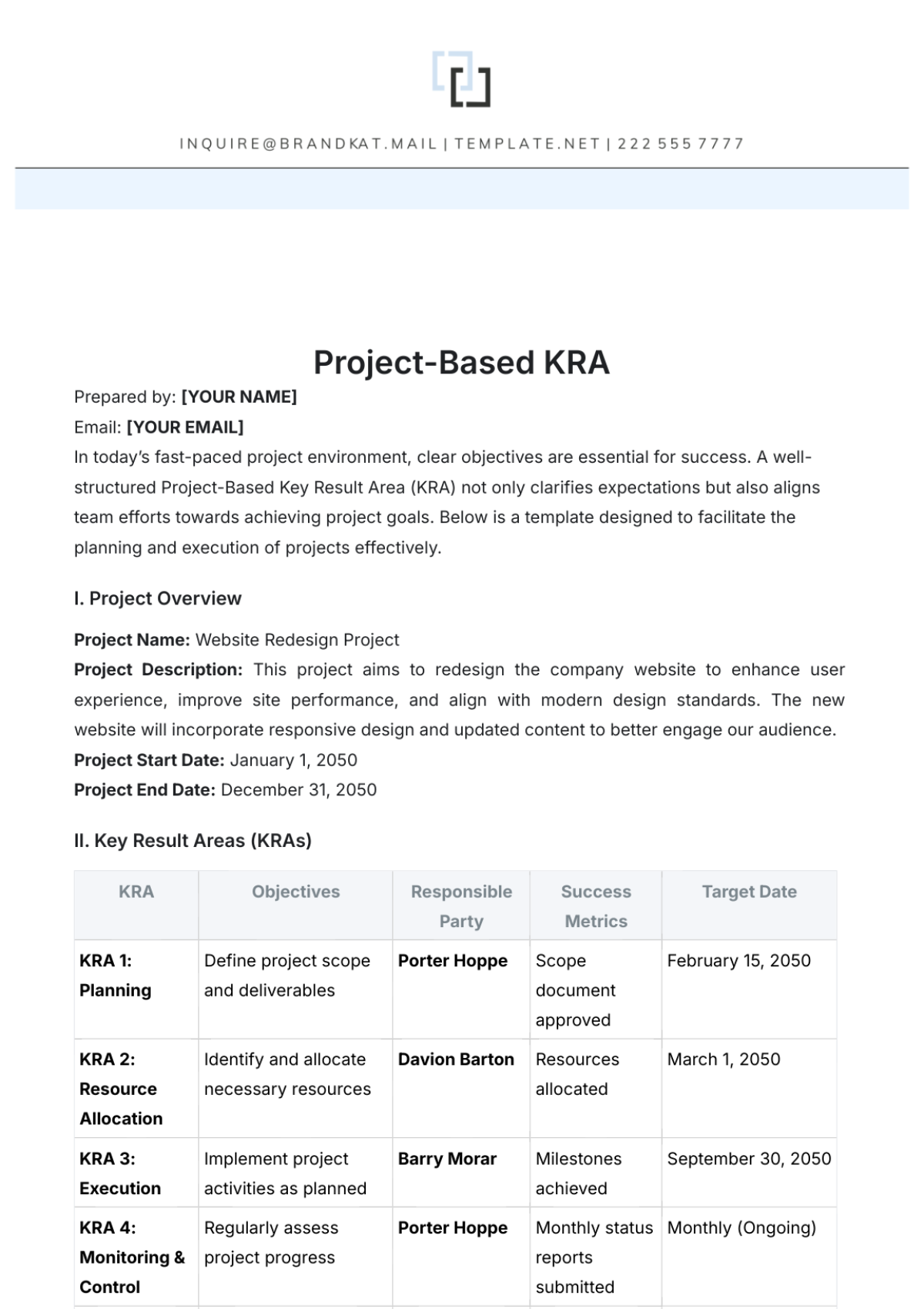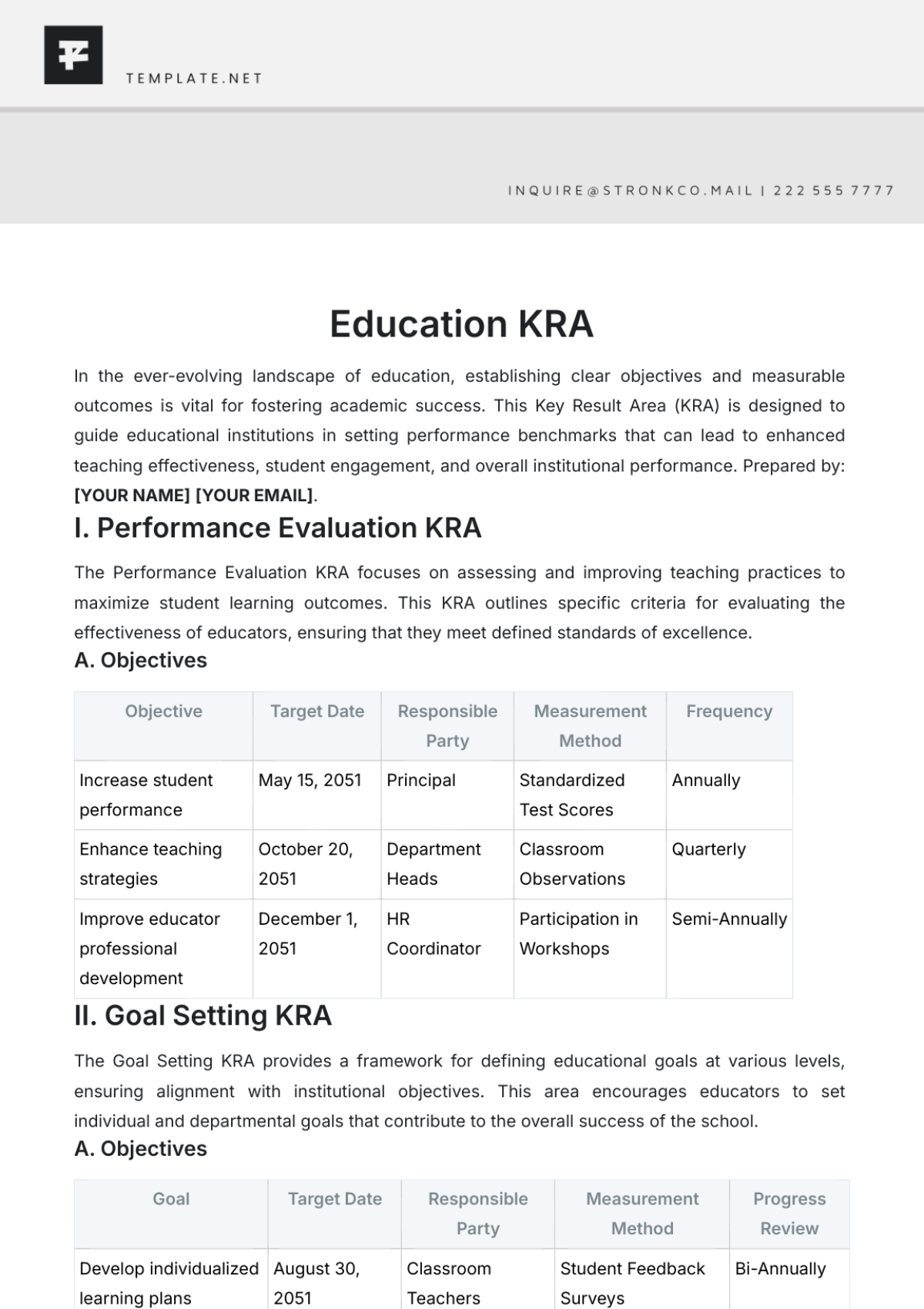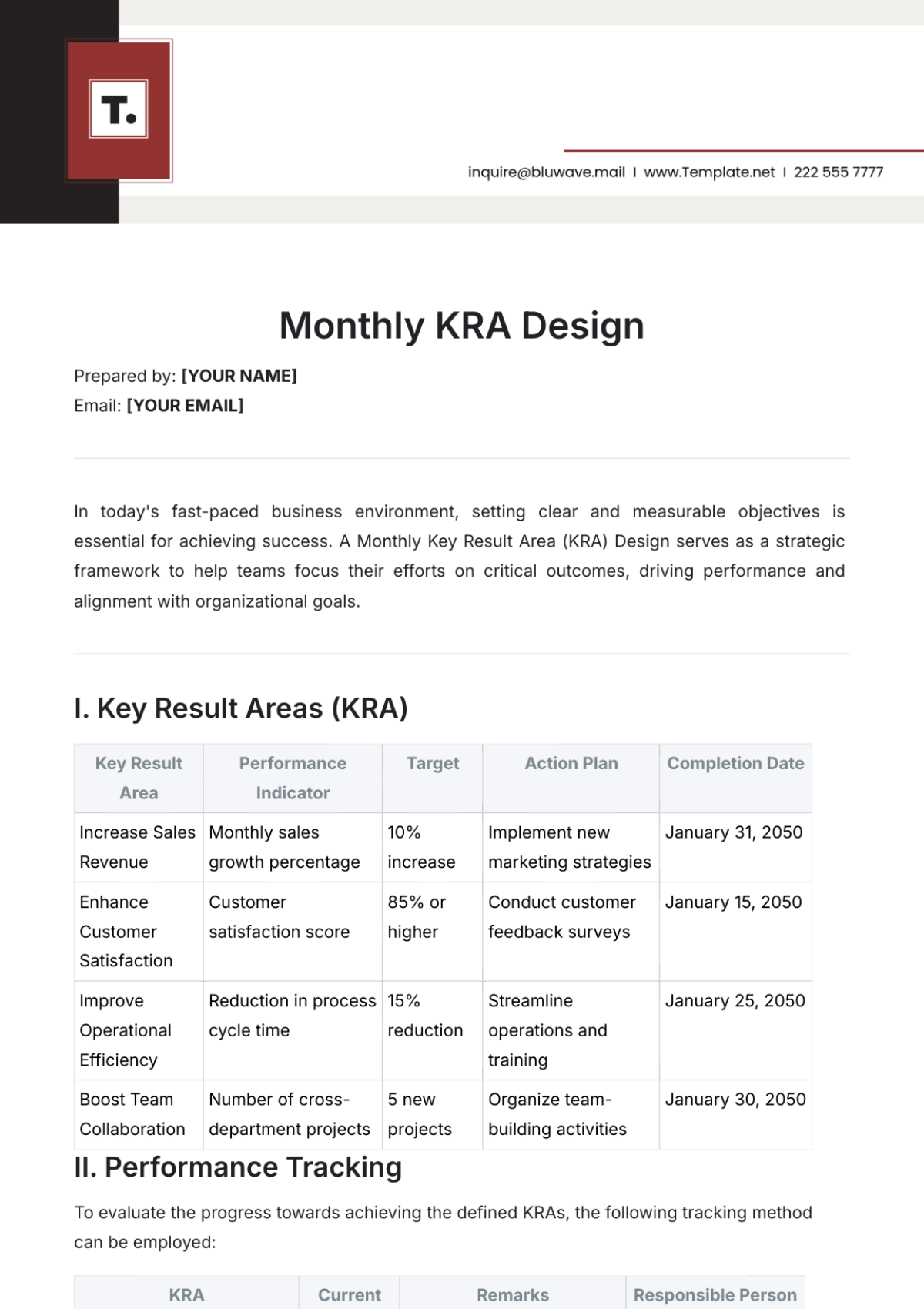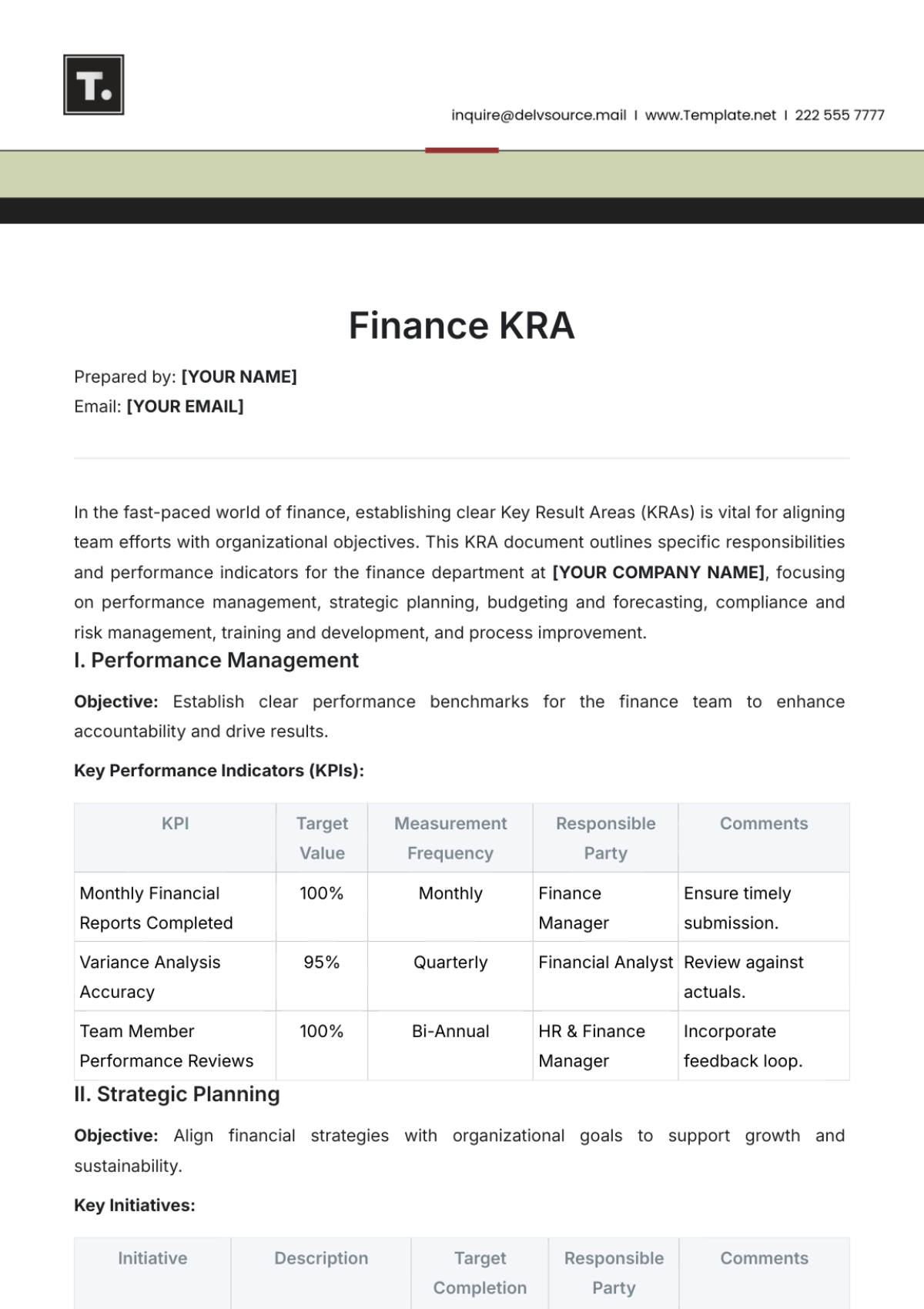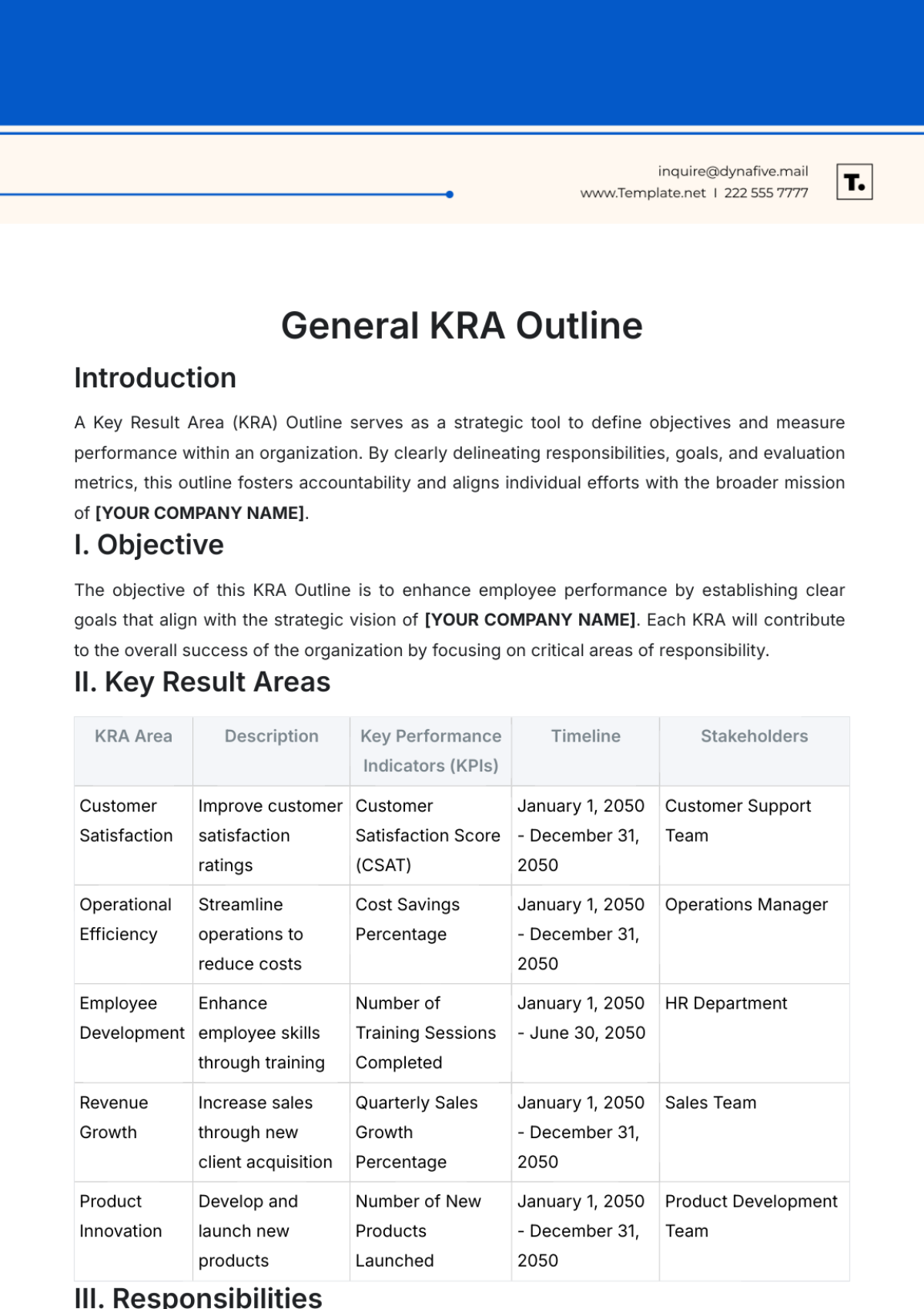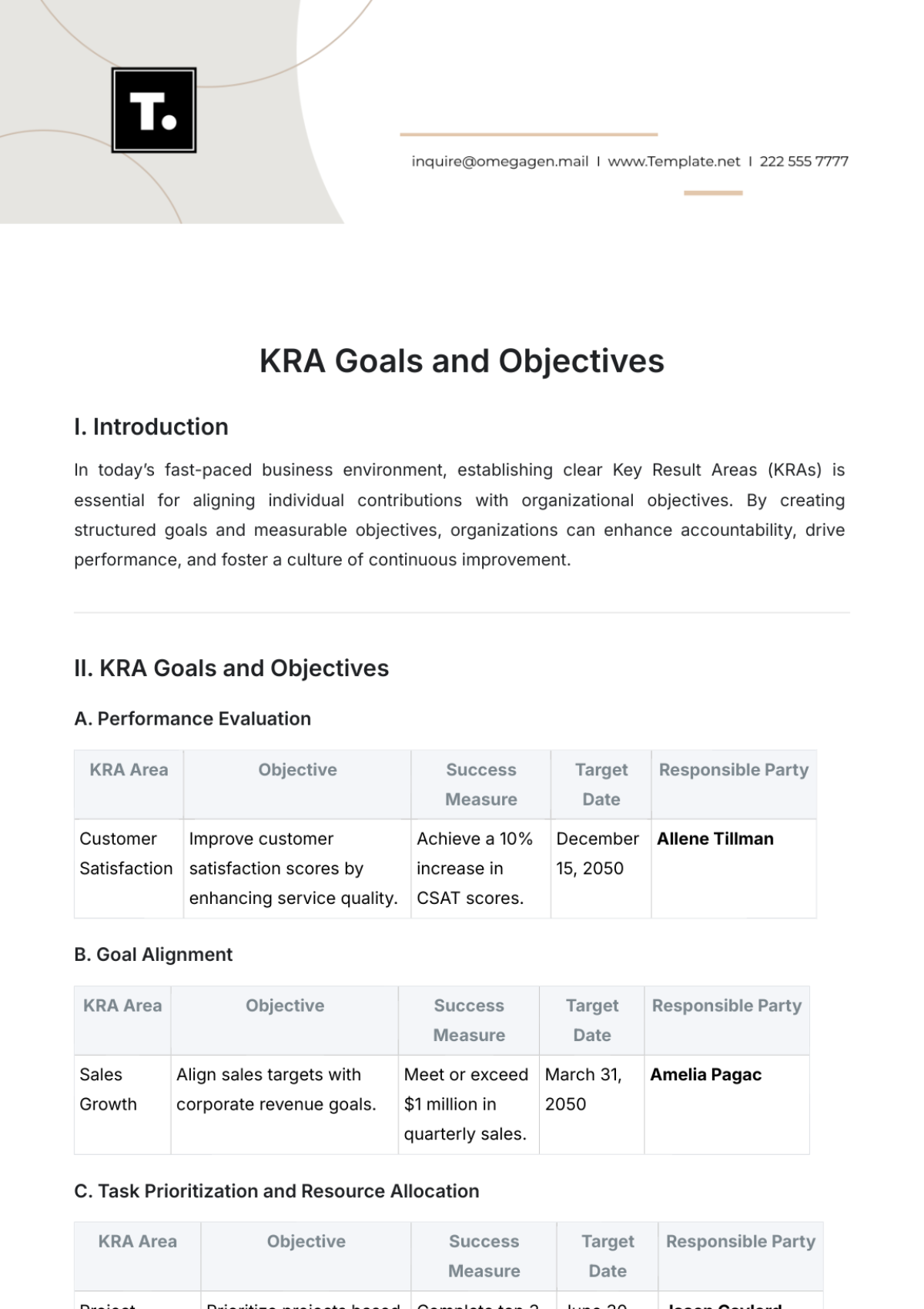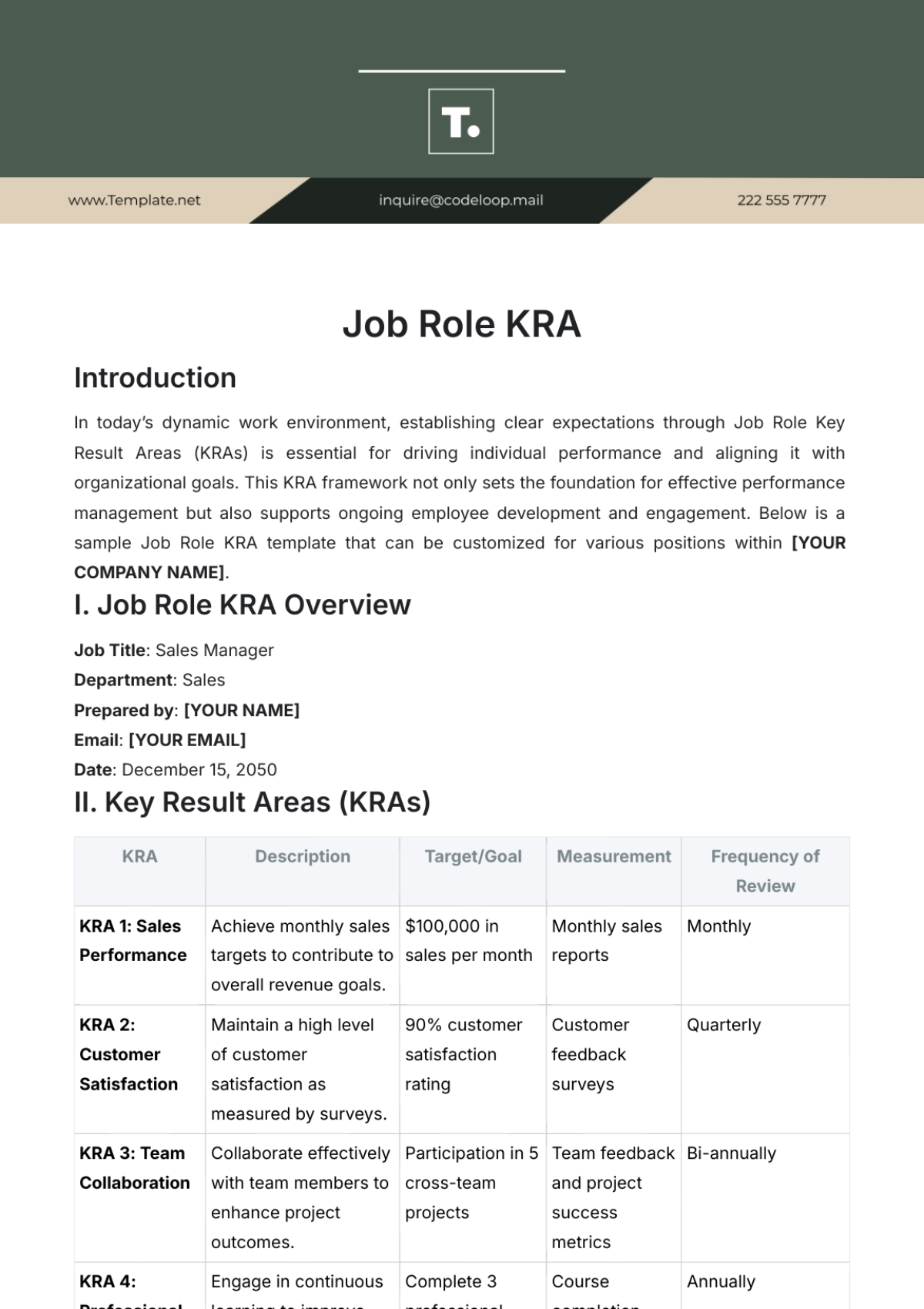Operations Manager KRA
Prepared by: [YOUR NAME]
Email: [YOUR EMAIL]
In the ever-evolving landscape of business operations, the role of the Operations Manager is pivotal in ensuring that organizational goals are met efficiently and effectively. This Key Result Area (KRA) document outlines the critical objectives that will guide the Operations Manager in their strategic responsibilities, driving performance and facilitating continuous improvement.
I. Performance Evaluation
KRA Objective | Target Metric | Measurement Method | Timeline | Status |
|---|---|---|---|---|
Improve operational efficiency | Reduce operational costs by 15% | Financial analysis reports | By December 15, 2050 | In Progress |
Enhance customer satisfaction | Achieve a CSAT score of 90% | Customer feedback surveys | By June 30, 2050 | Not Started |
Increase productivity | Improve output per employee by 20% | Productivity tracking software | By March 31, 2050 | On Track |
II. Goal Alignment
The Operations Manager must ensure that their objectives align with the broader strategic goals of [YOUR COMPANY NAME]. This alignment will promote cohesion across departments and enable the organization to work toward common outcomes.
Departmental Goal | Operations Contribution | Alignment Score (1-5) | Review Date | Notes |
|---|---|---|---|---|
Increase market share by 10% | Streamline supply chain processes | 4 | April 15, 2050 | Requires further collaboration |
Launch new product line | Ensure timely delivery of resources | 5 | July 20, 2050 | Critical success factor |
Enhance brand reputation | Maintain high product quality | 5 | October 10, 2050 | Ongoing training needed |
III. Resource Allocation
Effective resource allocation is essential for achieving operational excellence. The following table outlines the key resources needed for various initiatives that the Operations Manager will oversee.
Initiative | Resource Type | Estimated Budget | Allocated Resources | Deadline |
|---|---|---|---|---|
Process improvement initiative | Technology upgrades | $50,000 | Software and training | February 15, 2050 |
Staff training program | Human resources | $25,000 | Trainers and materials | May 1, 2050 |
Quality control enhancement | Quality management tools | $30,000 | Equipment and software | August 30, 2050 |
IV. Continuous Improvement
The Operations Manager is responsible for identifying and implementing strategies for continuous improvement across all operational processes.
Improvement Area | Action Plan | Expected Outcome | Review Frequency | Responsible Person |
|---|---|---|---|---|
Process optimization | Conduct process audits | Reduced cycle times | Quarterly | Lowell Quizon |
Employee engagement | Implement feedback mechanisms | Increased morale and retention | Monthly | Emie Howell |
Technology adoption | Integrate new software solutions | Enhanced efficiency | Biannually | Tracey Gleason |
V. Accountability
Establishing accountability within the operations team is crucial for driving results. The Operations Manager will ensure that all team members understand their responsibilities and are held accountable for their performance.
In conclusion, this KRA document serves as a foundational tool for the Operations Manager at [YOUR COMPANY NAME]. By clearly defining objectives and metrics, it fosters a culture of accountability and continuous improvement, ultimately driving the organization toward greater operational success. The commitment to these key areas will not only enhance individual performance but also contribute to the overall growth and efficiency of the company.
